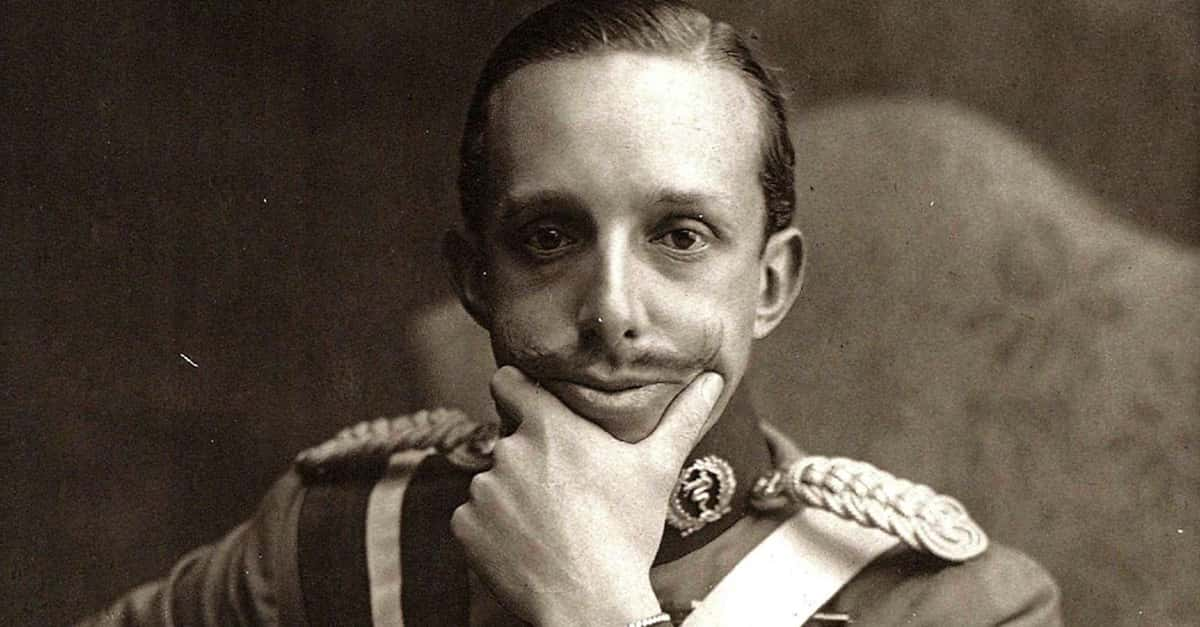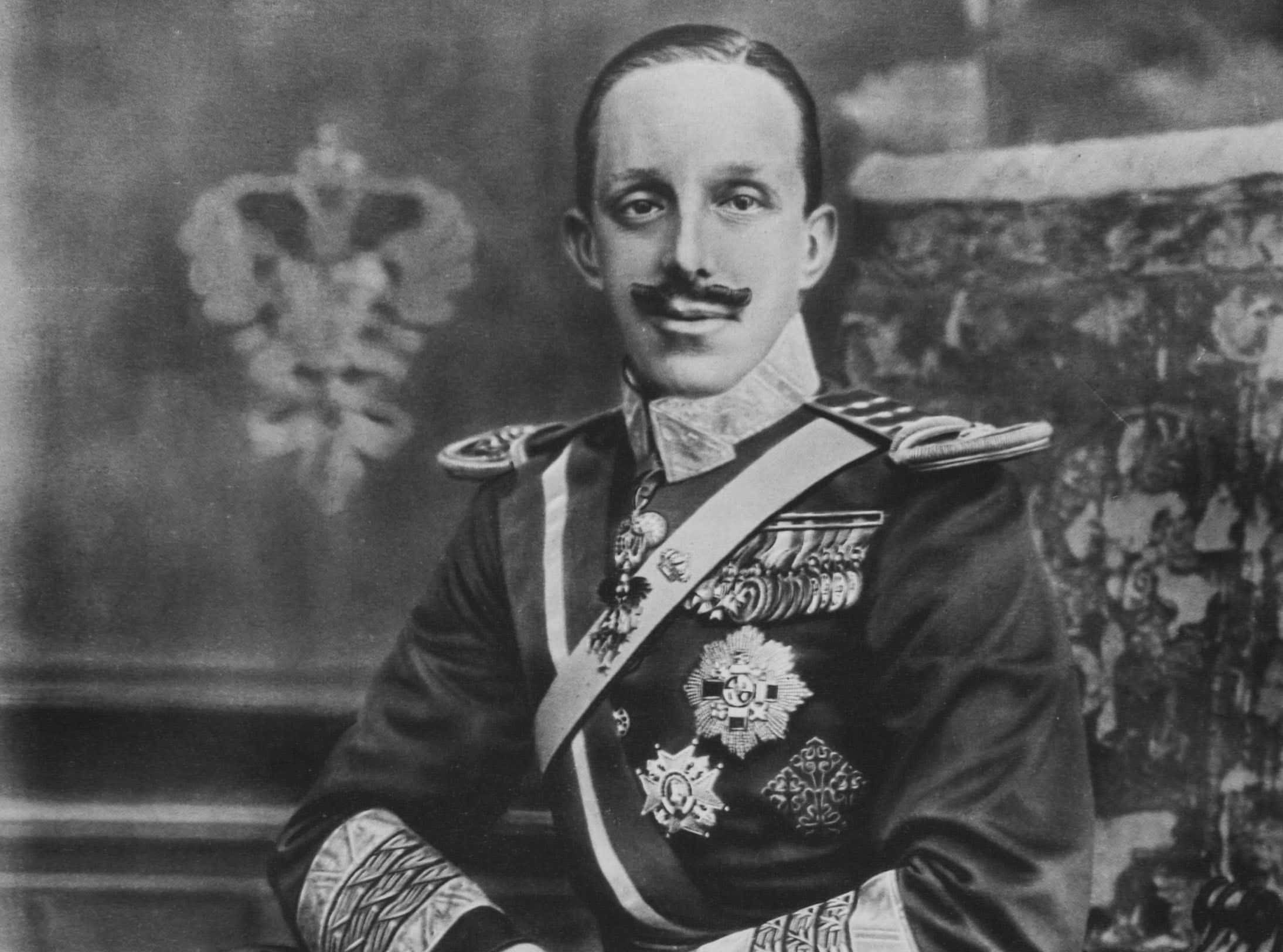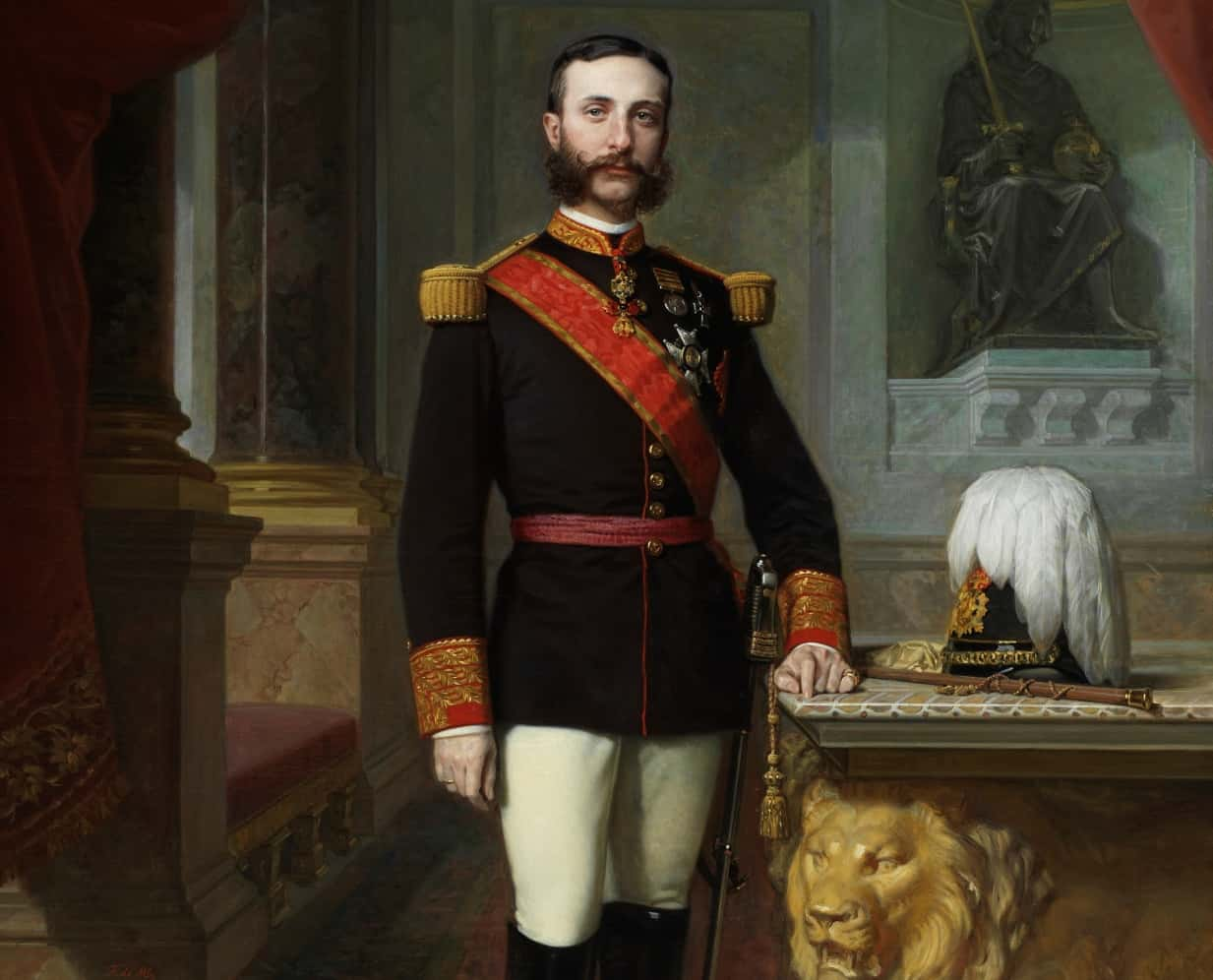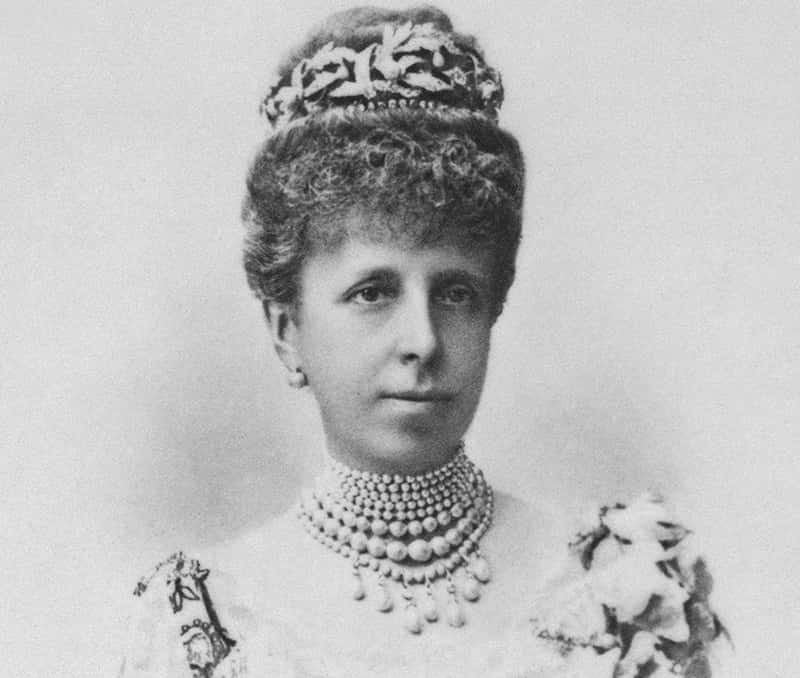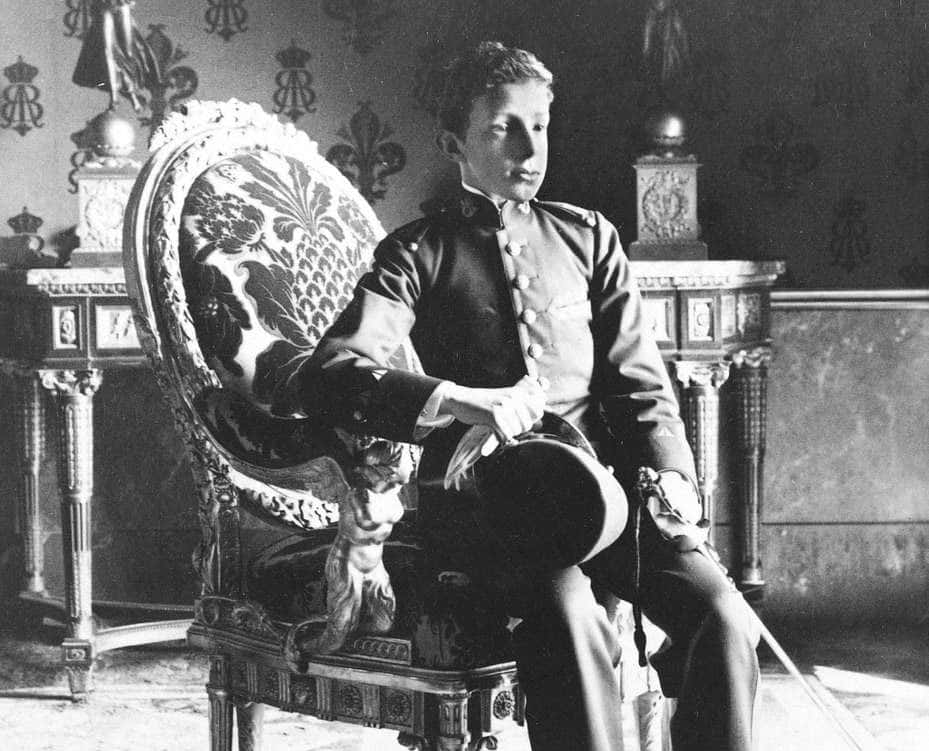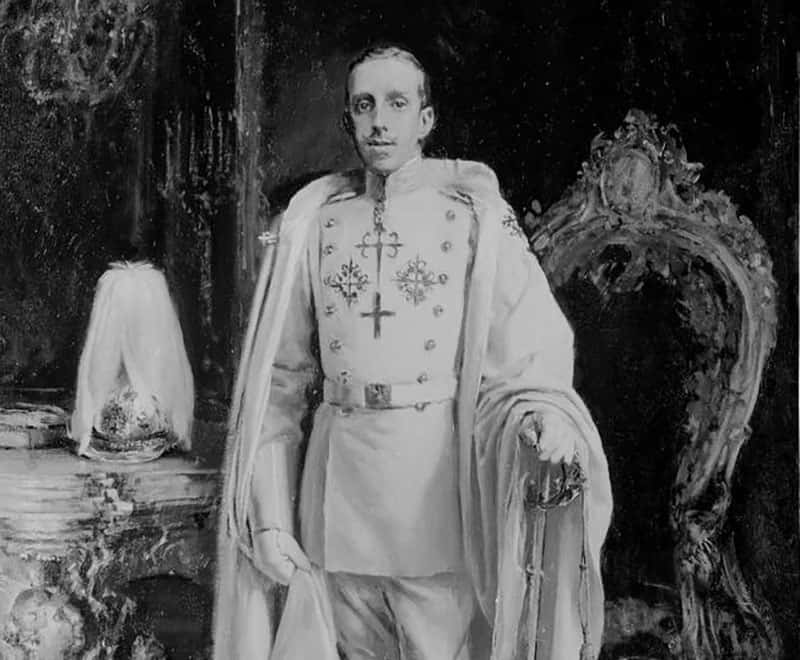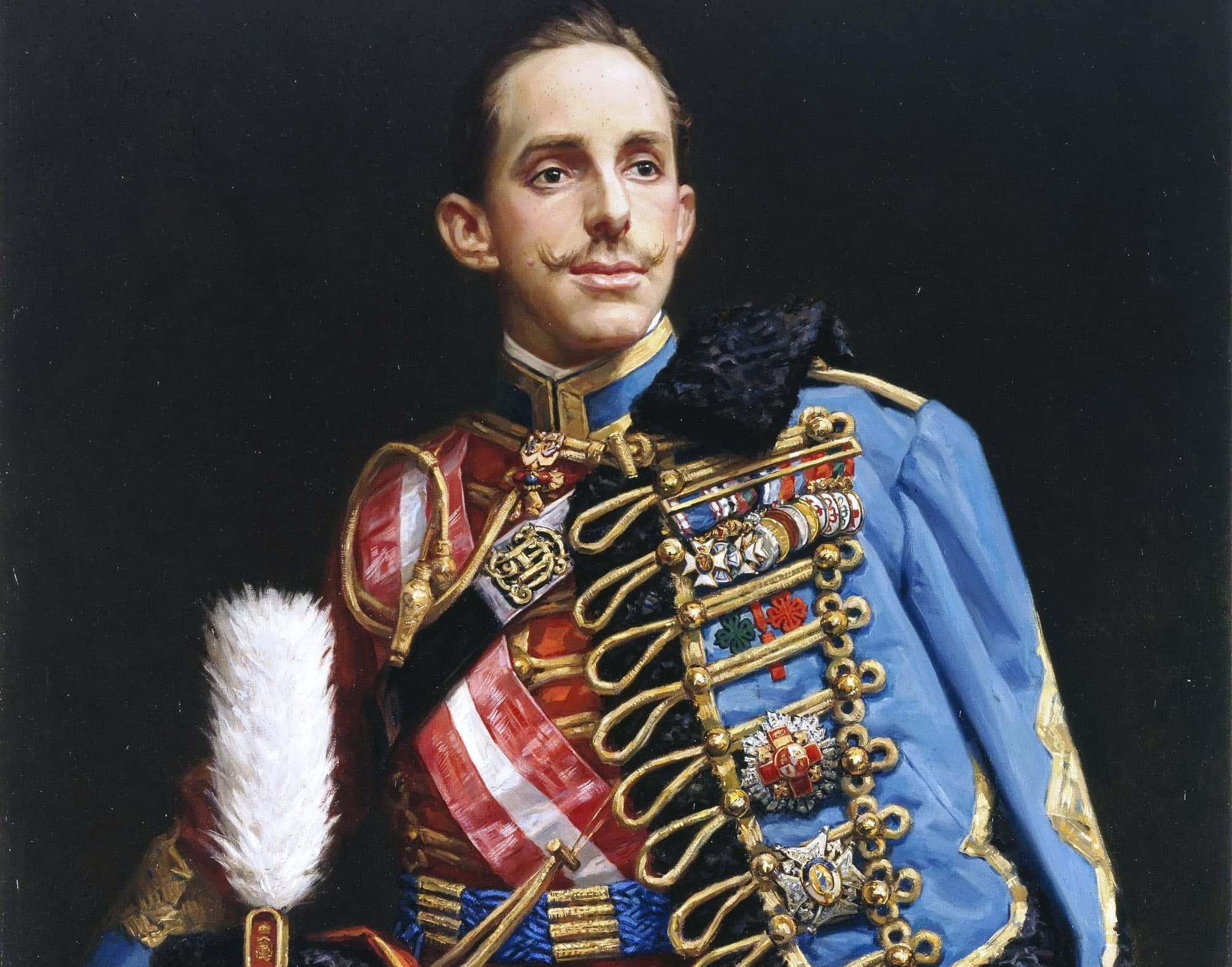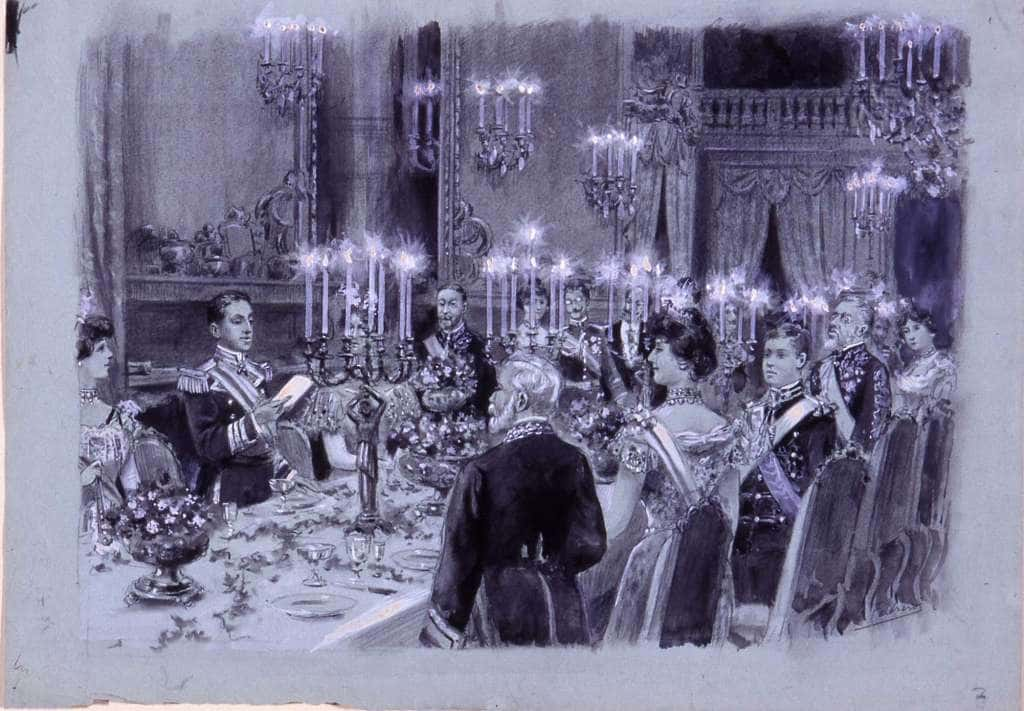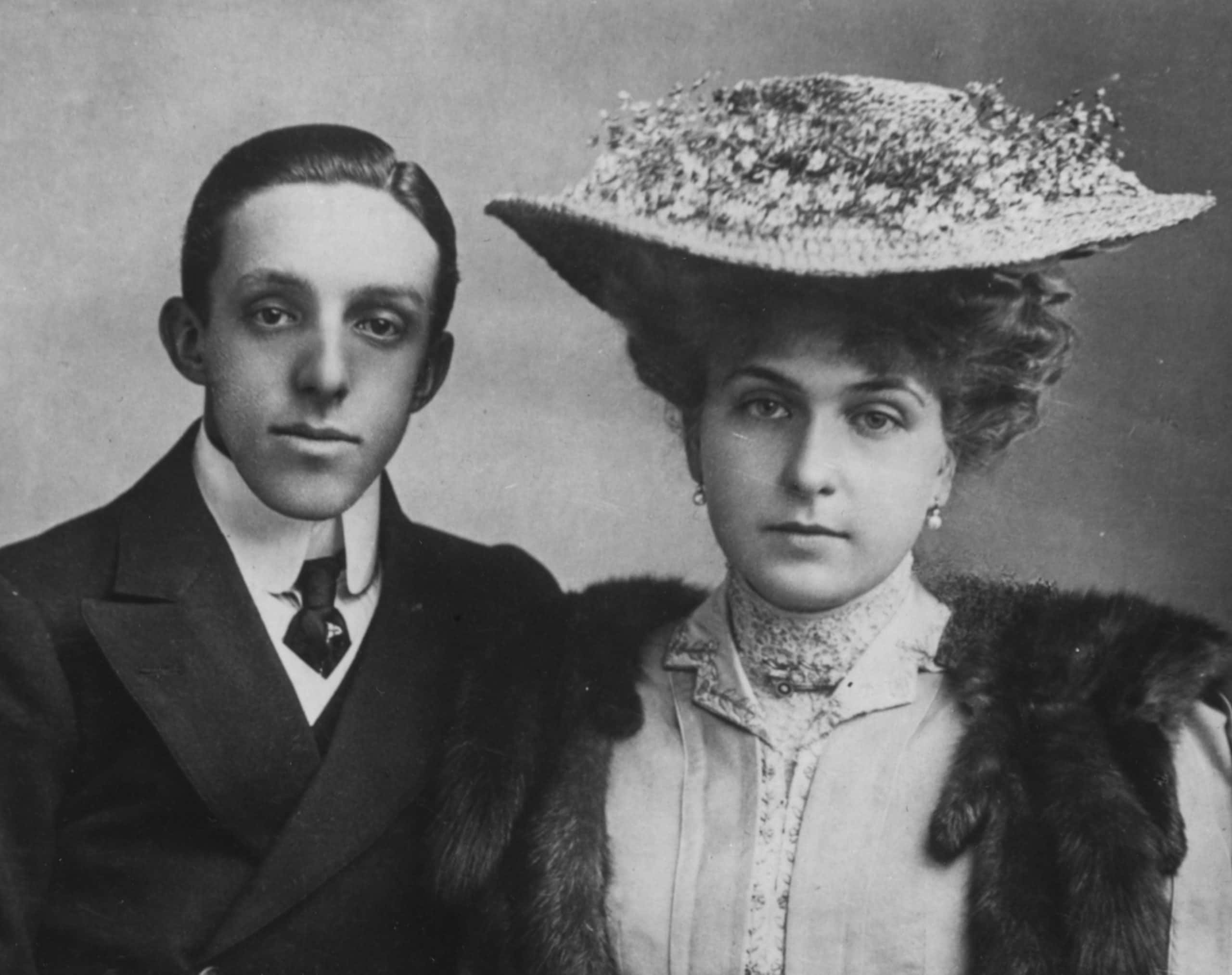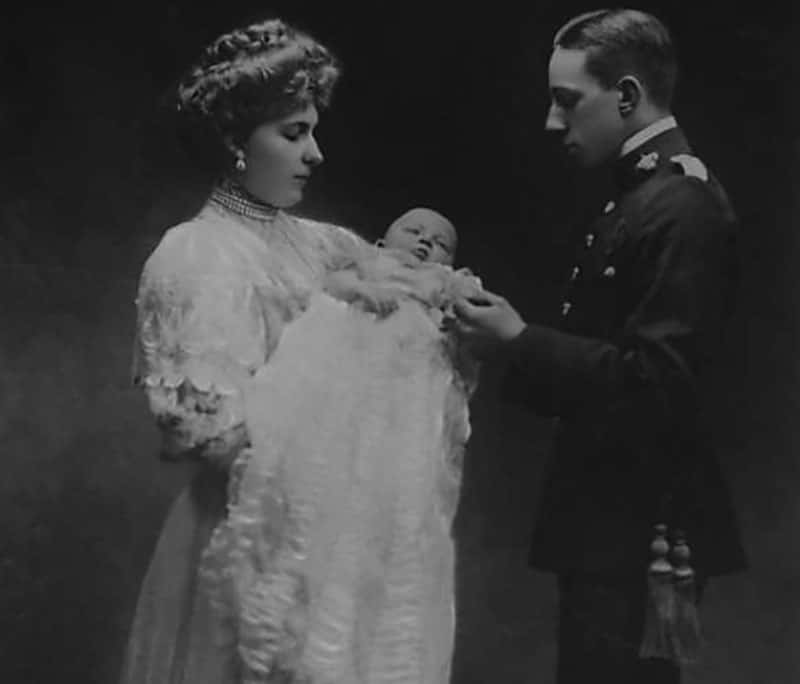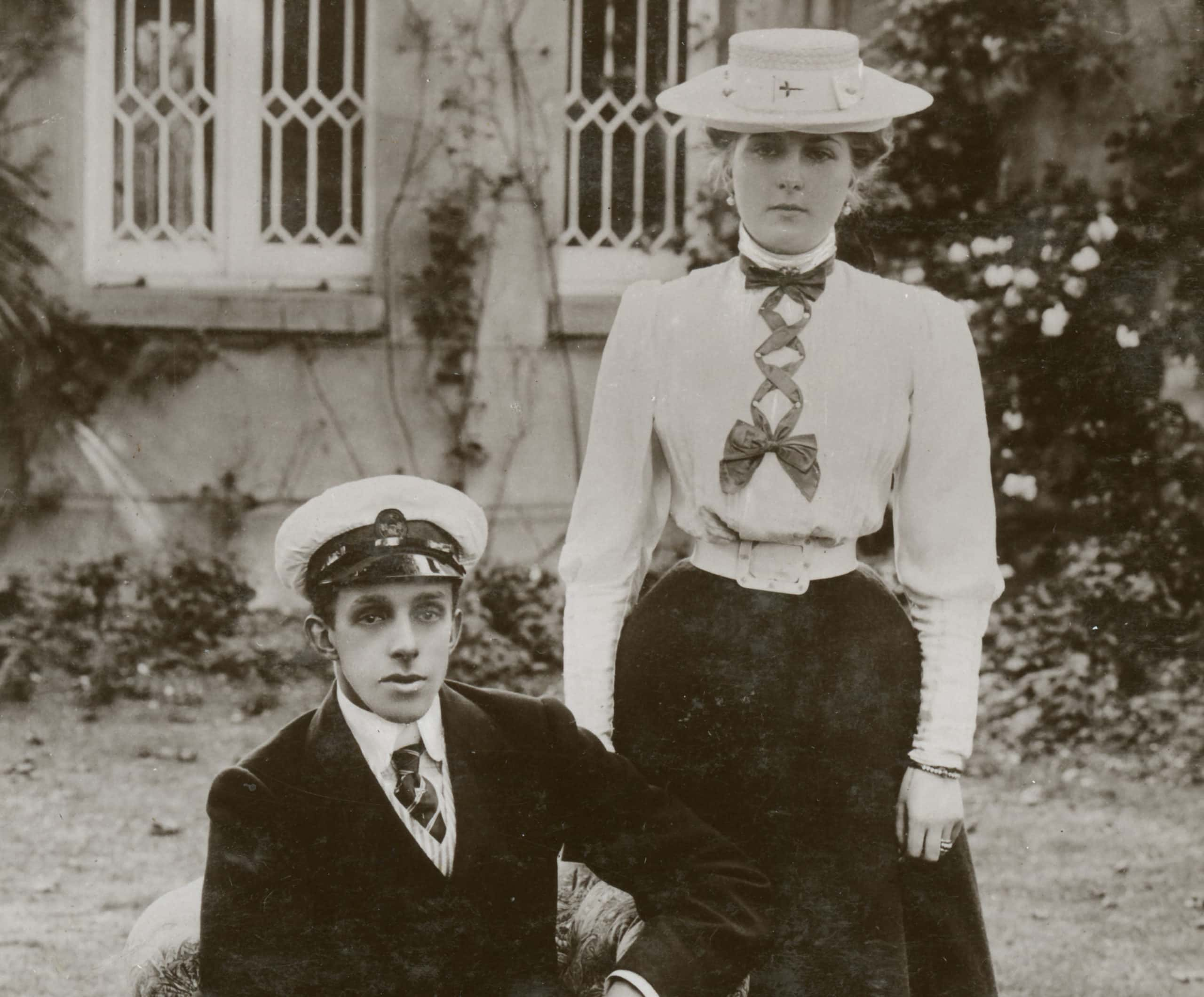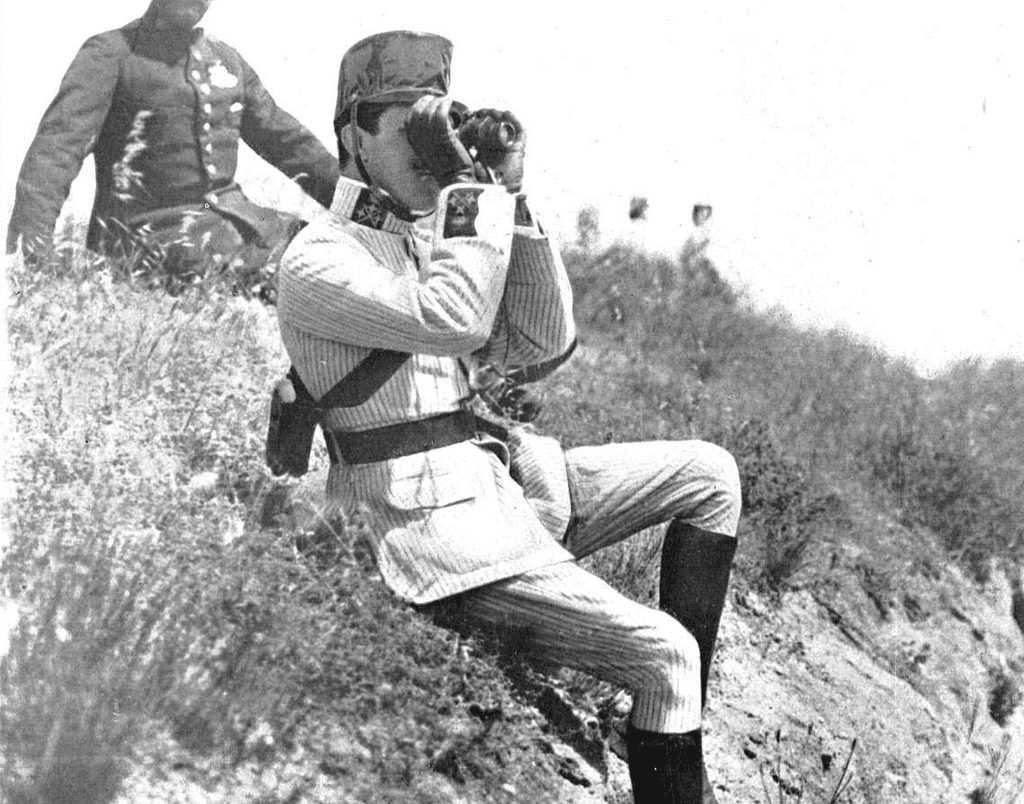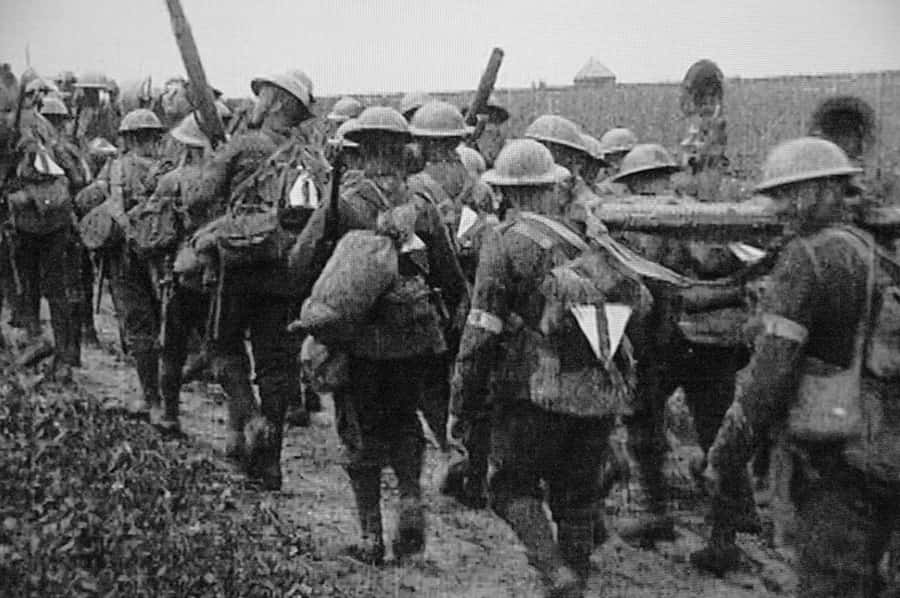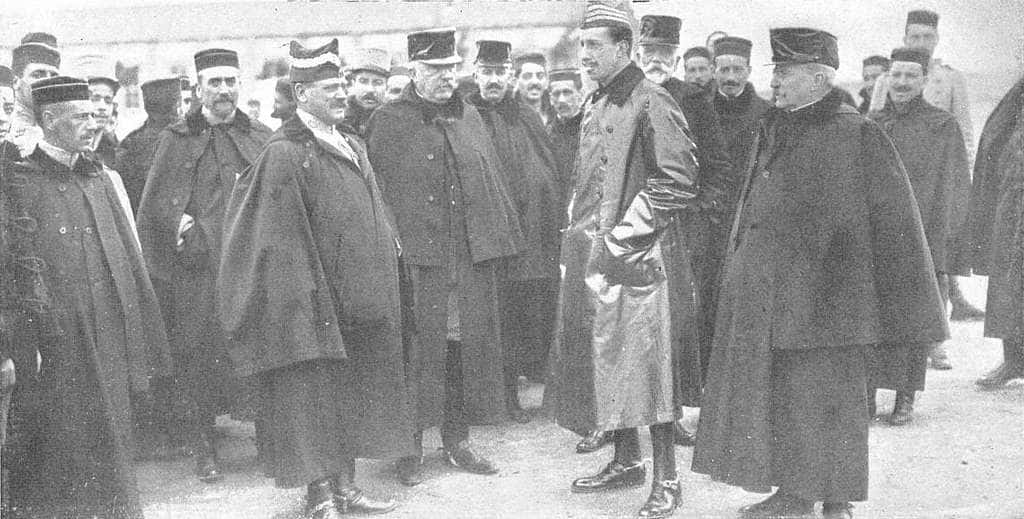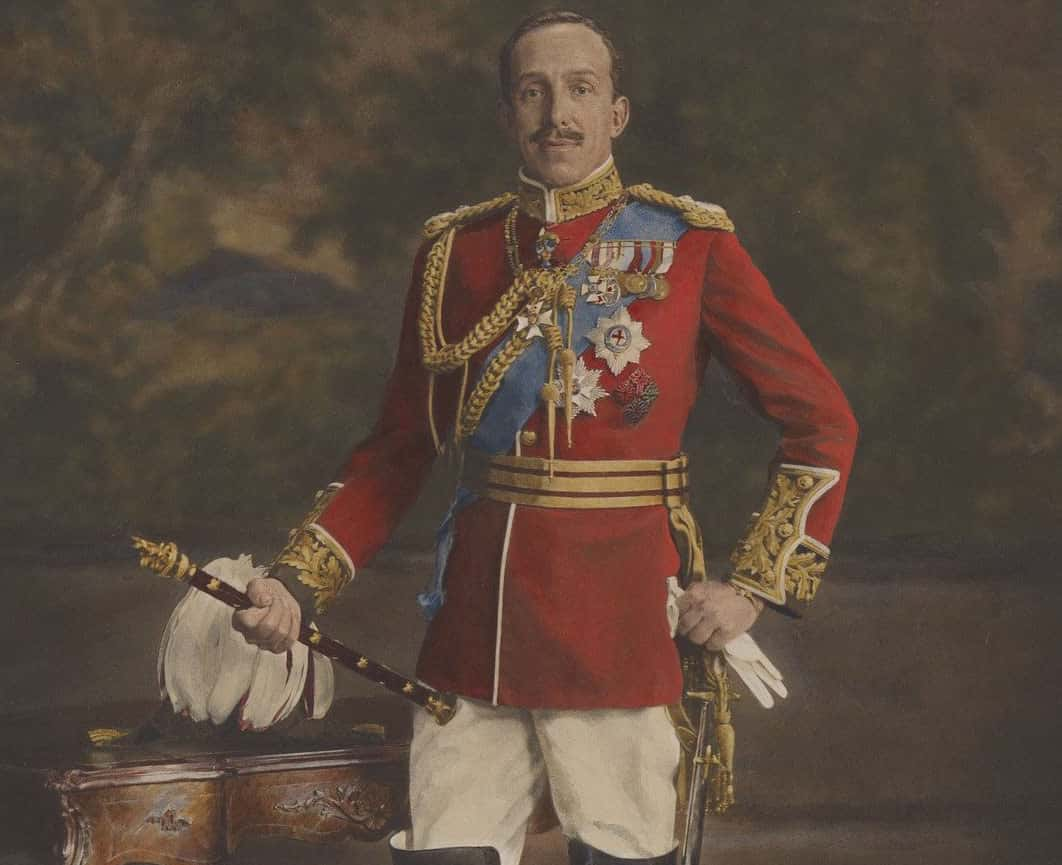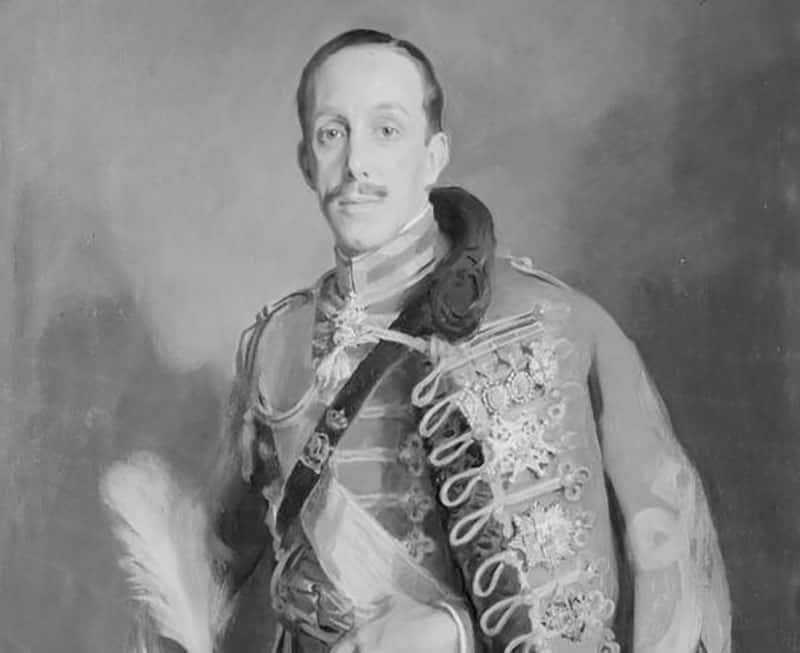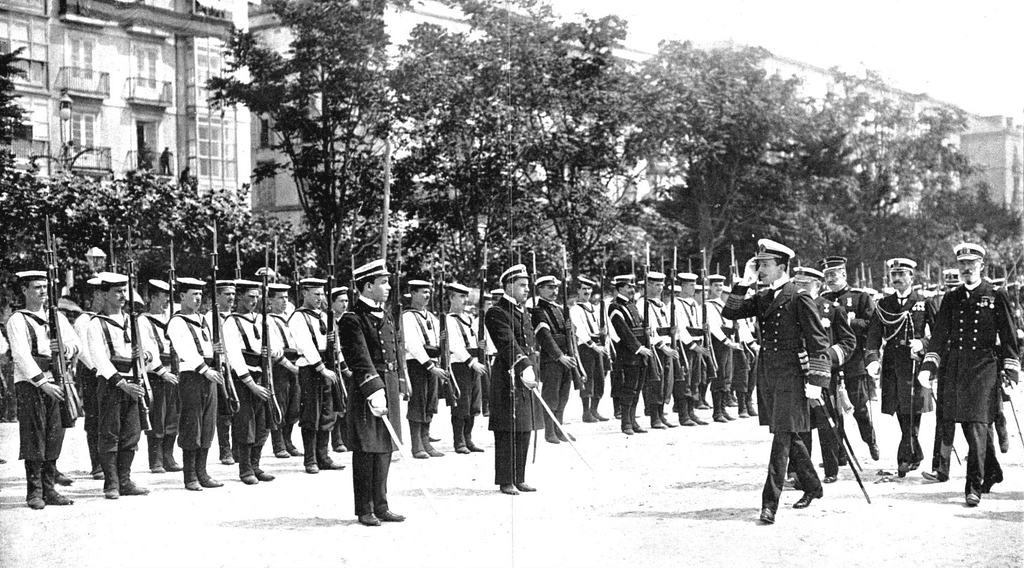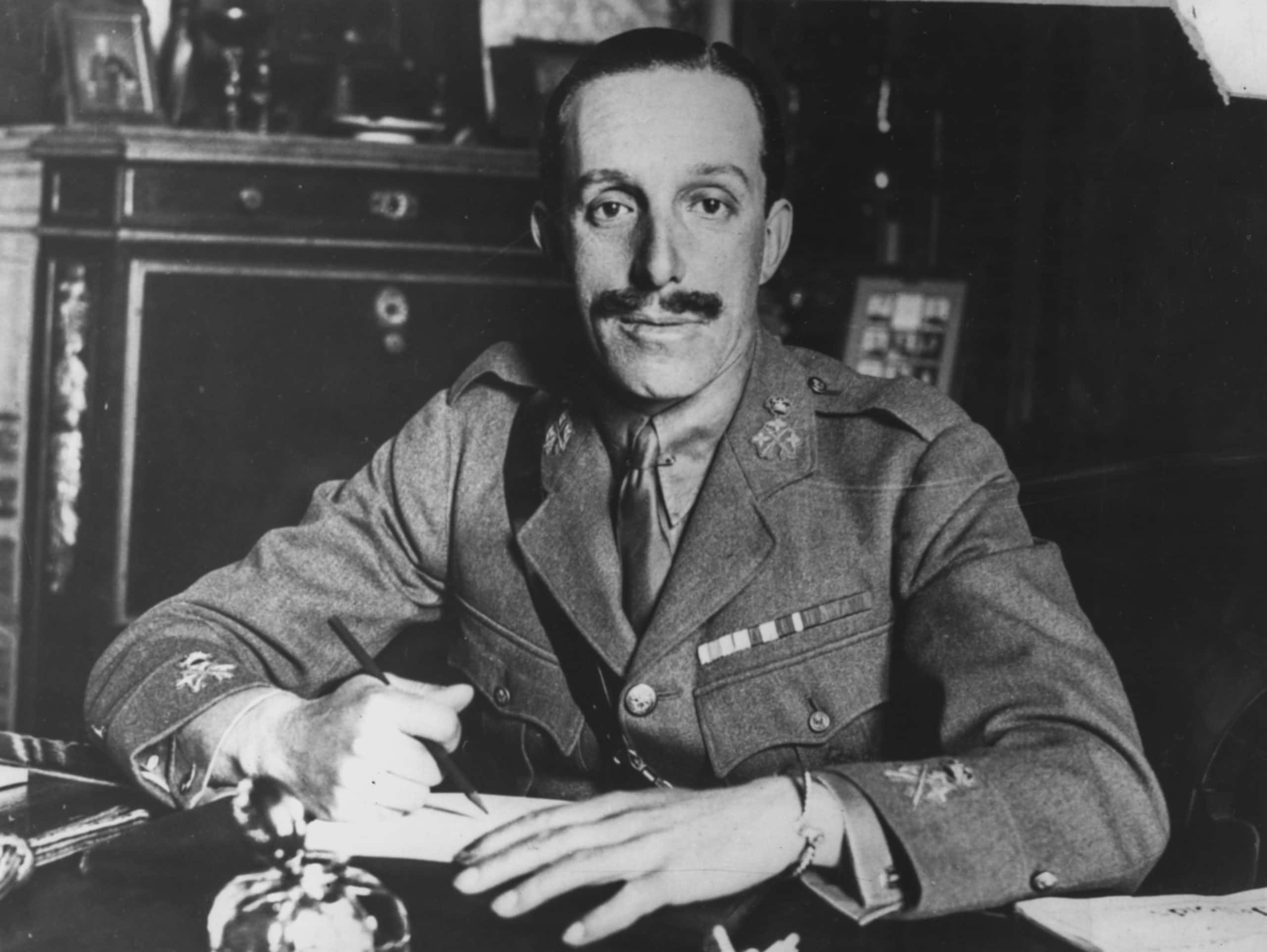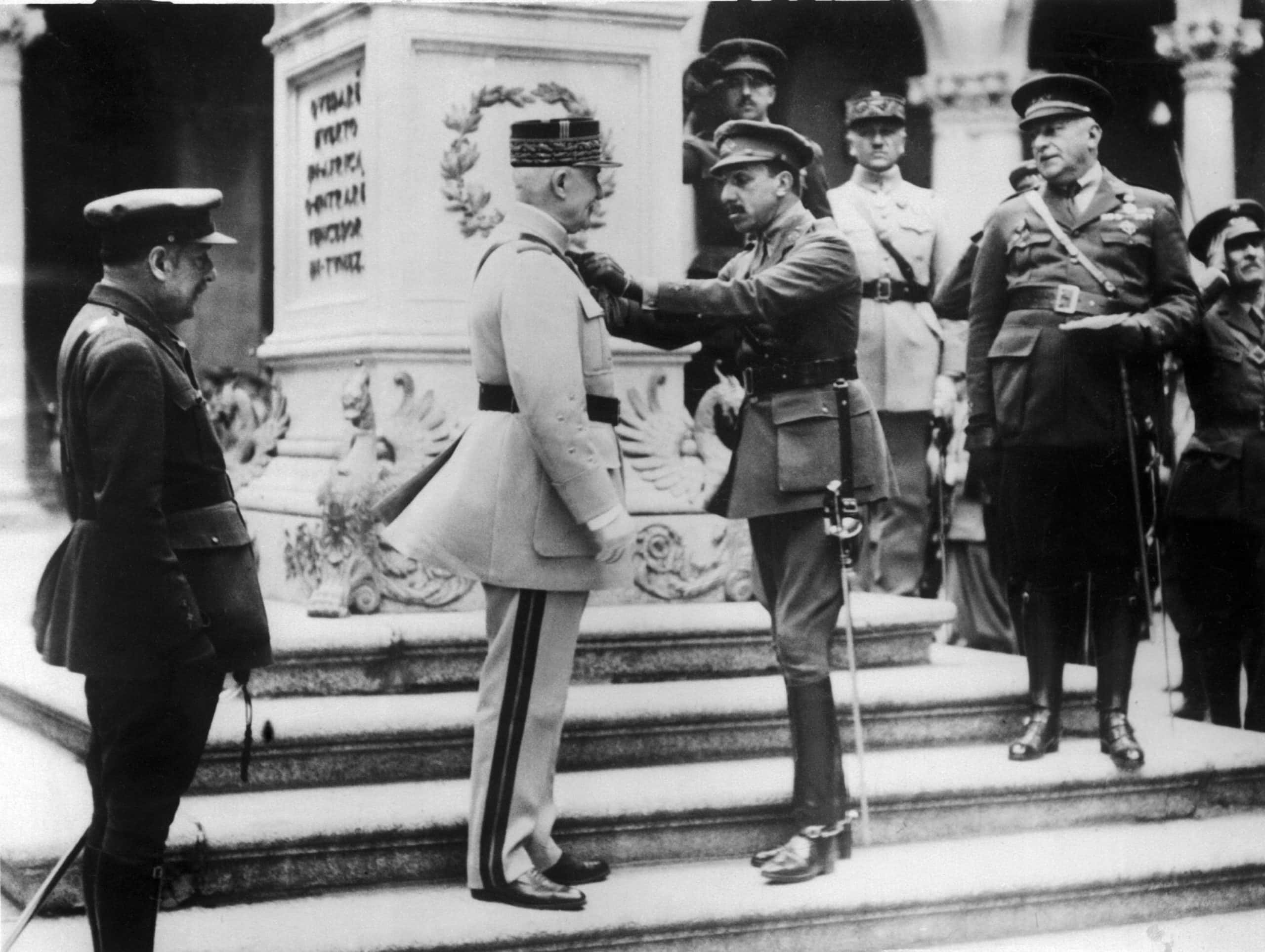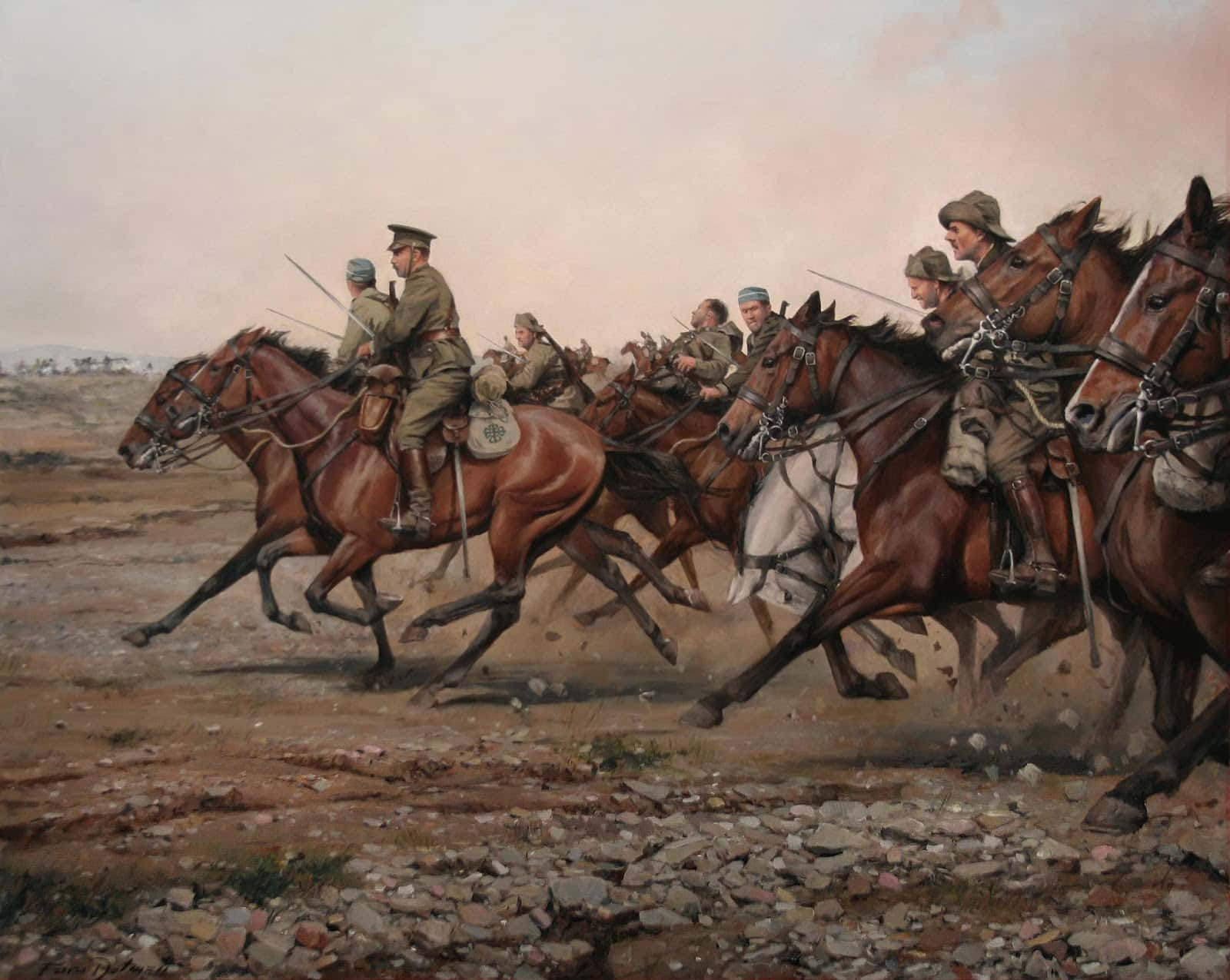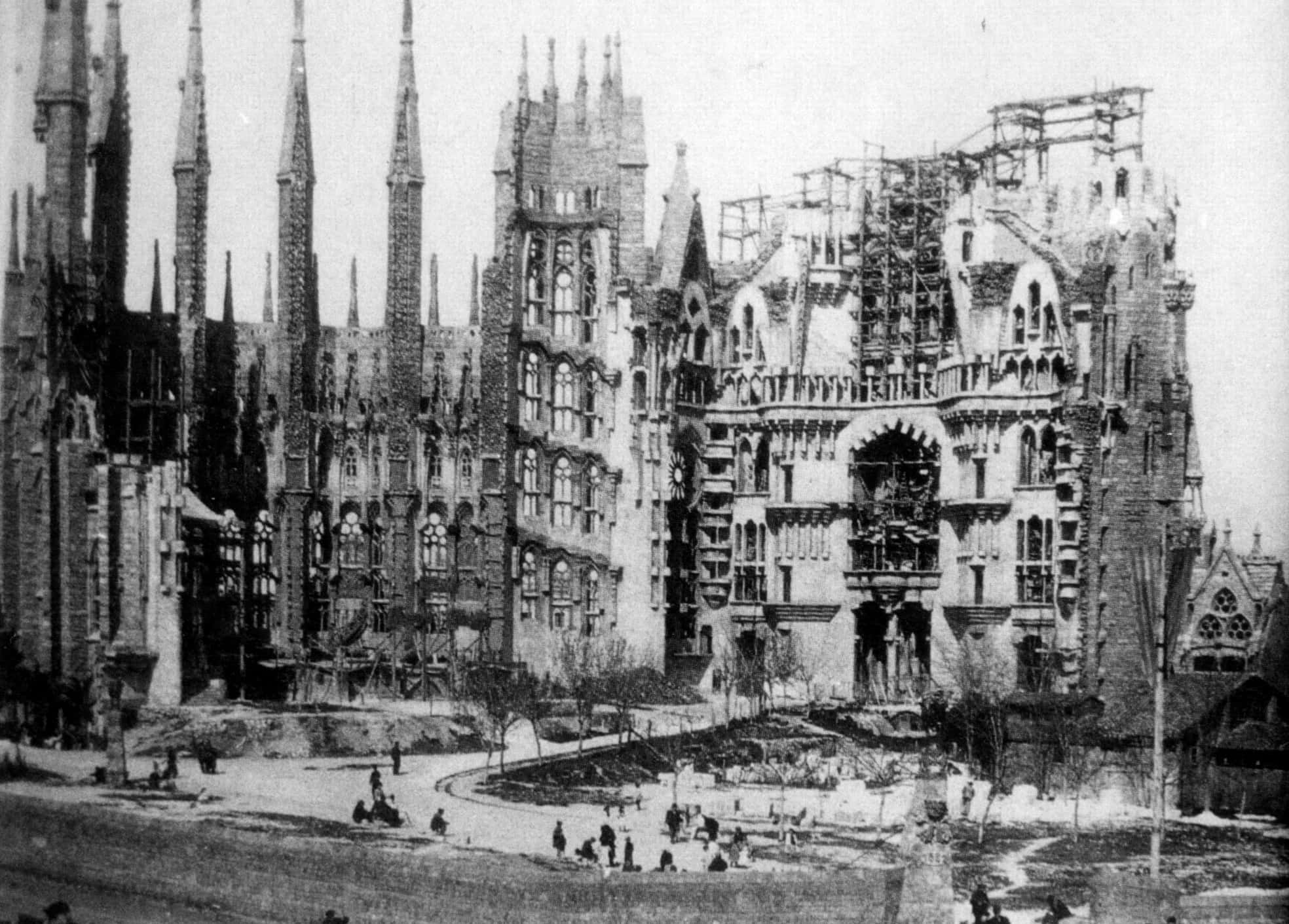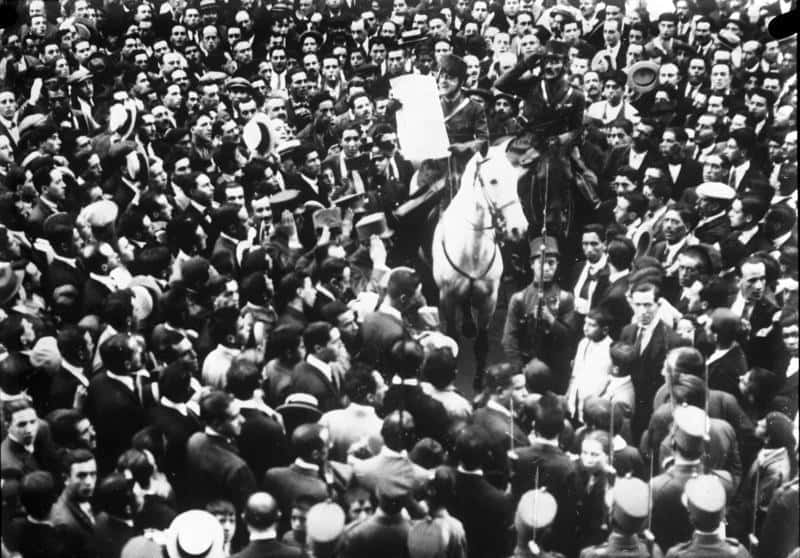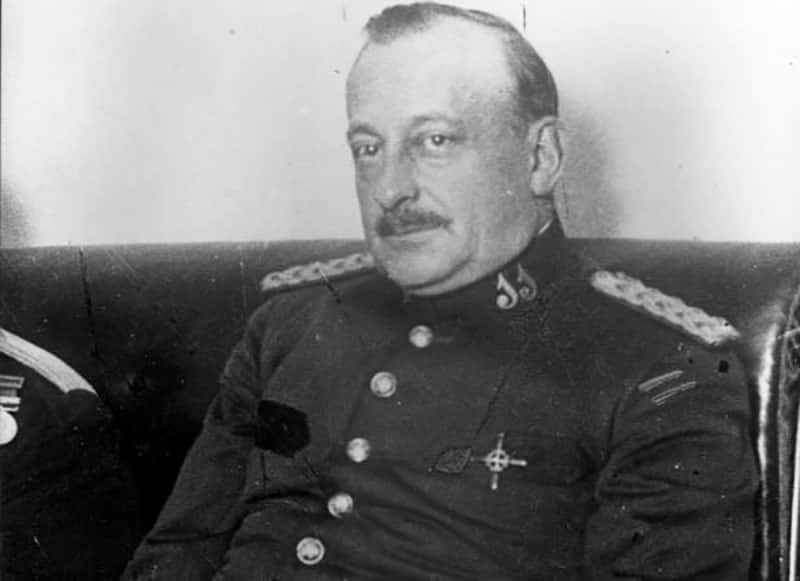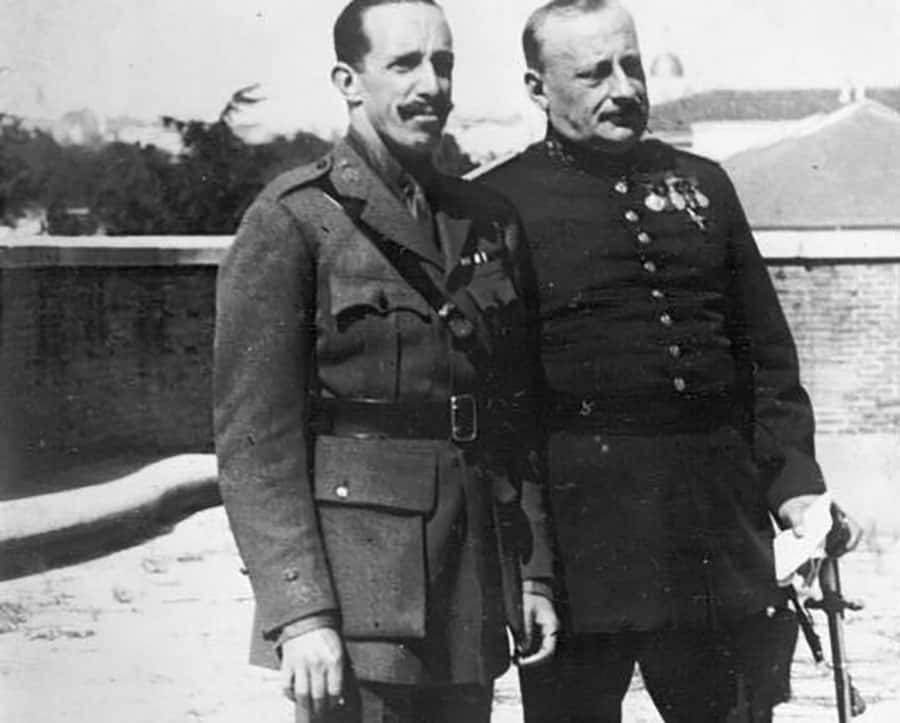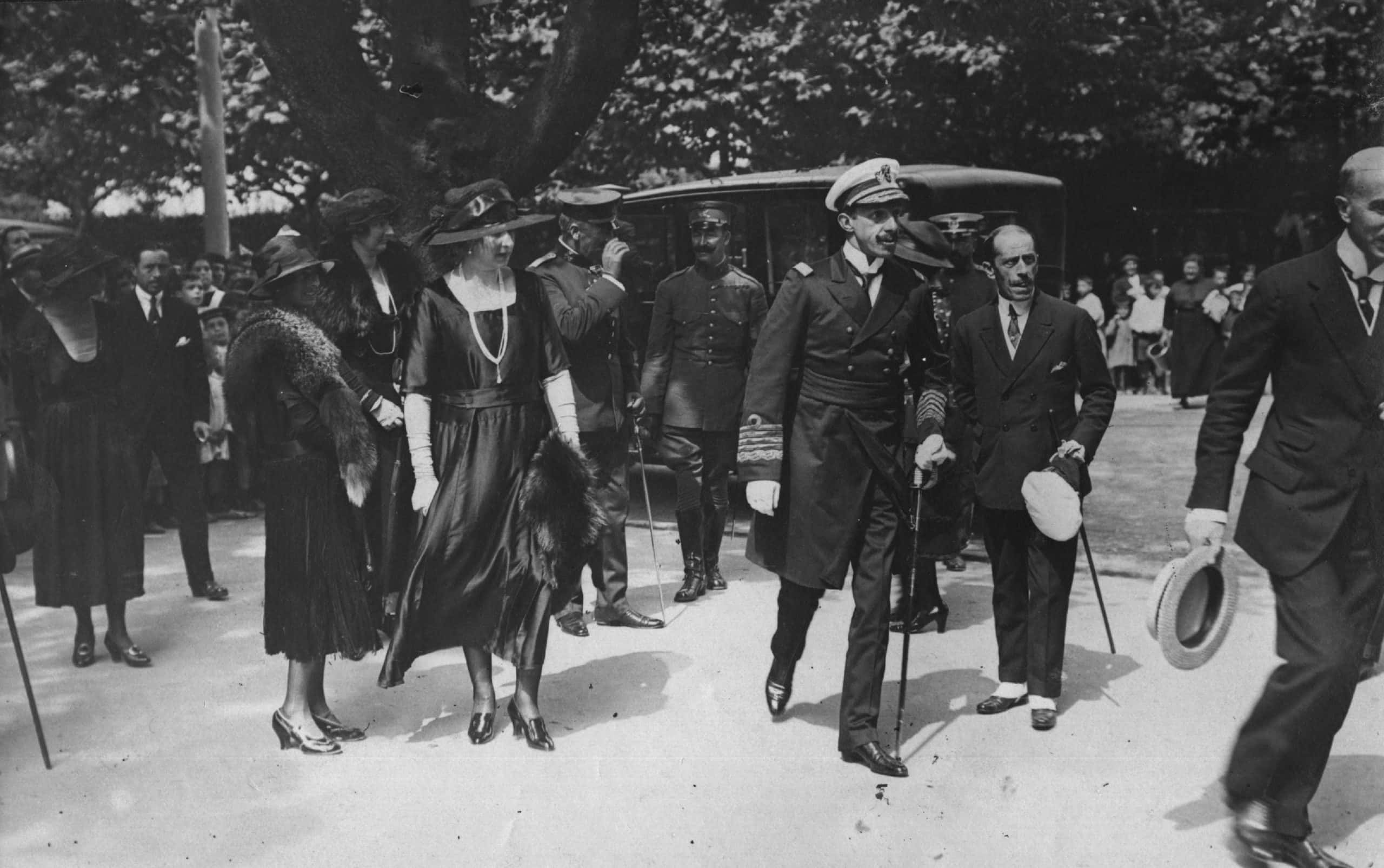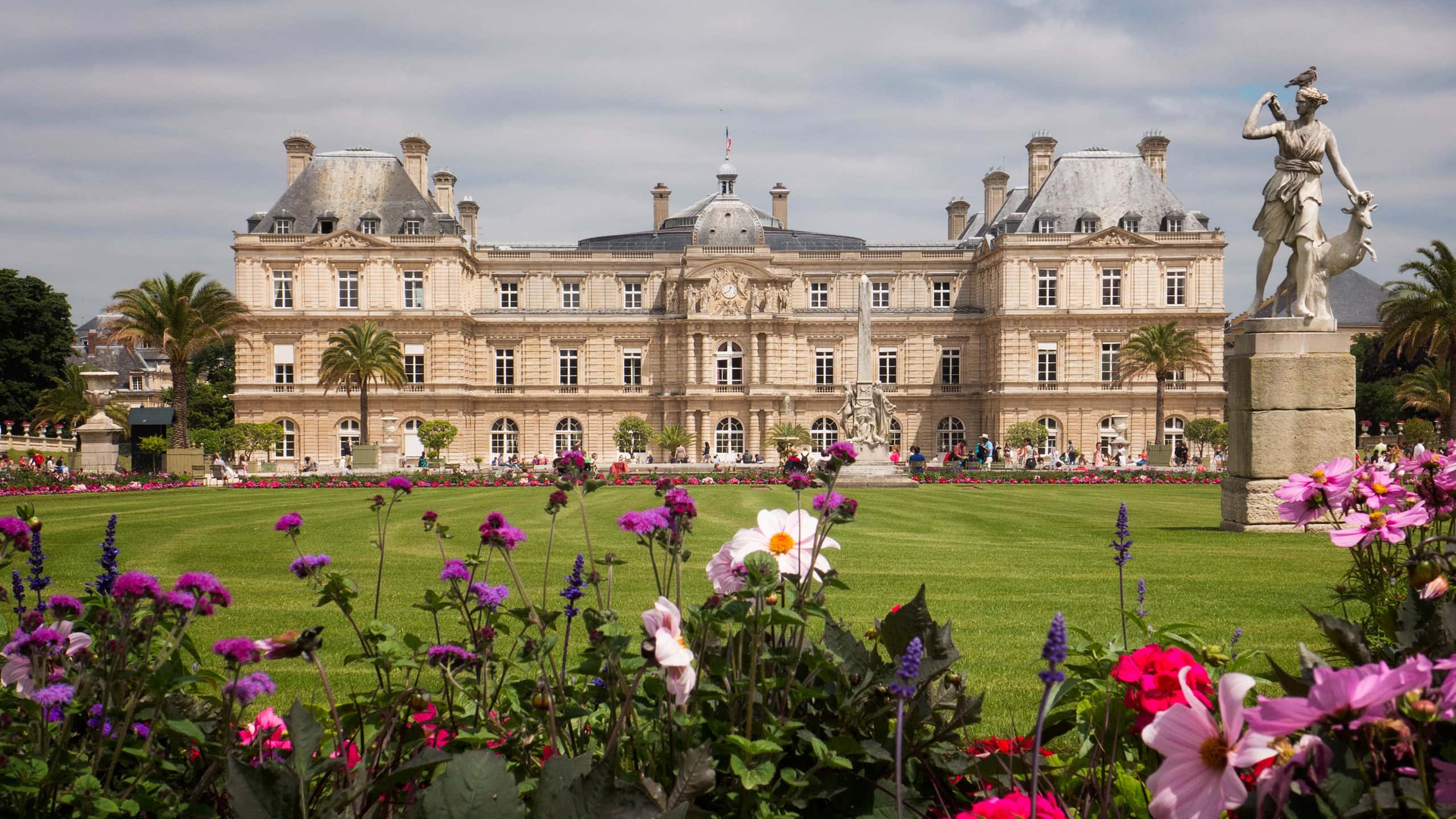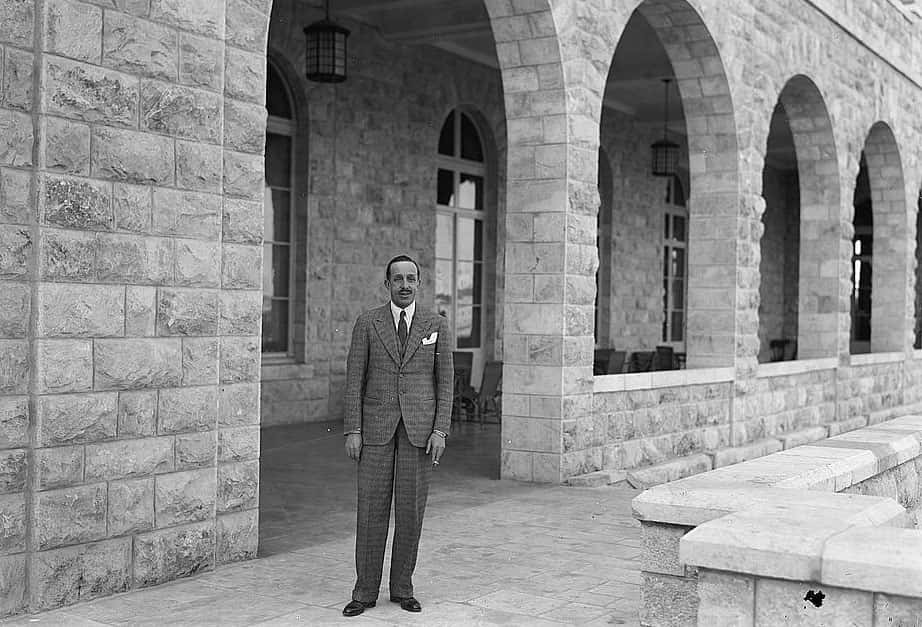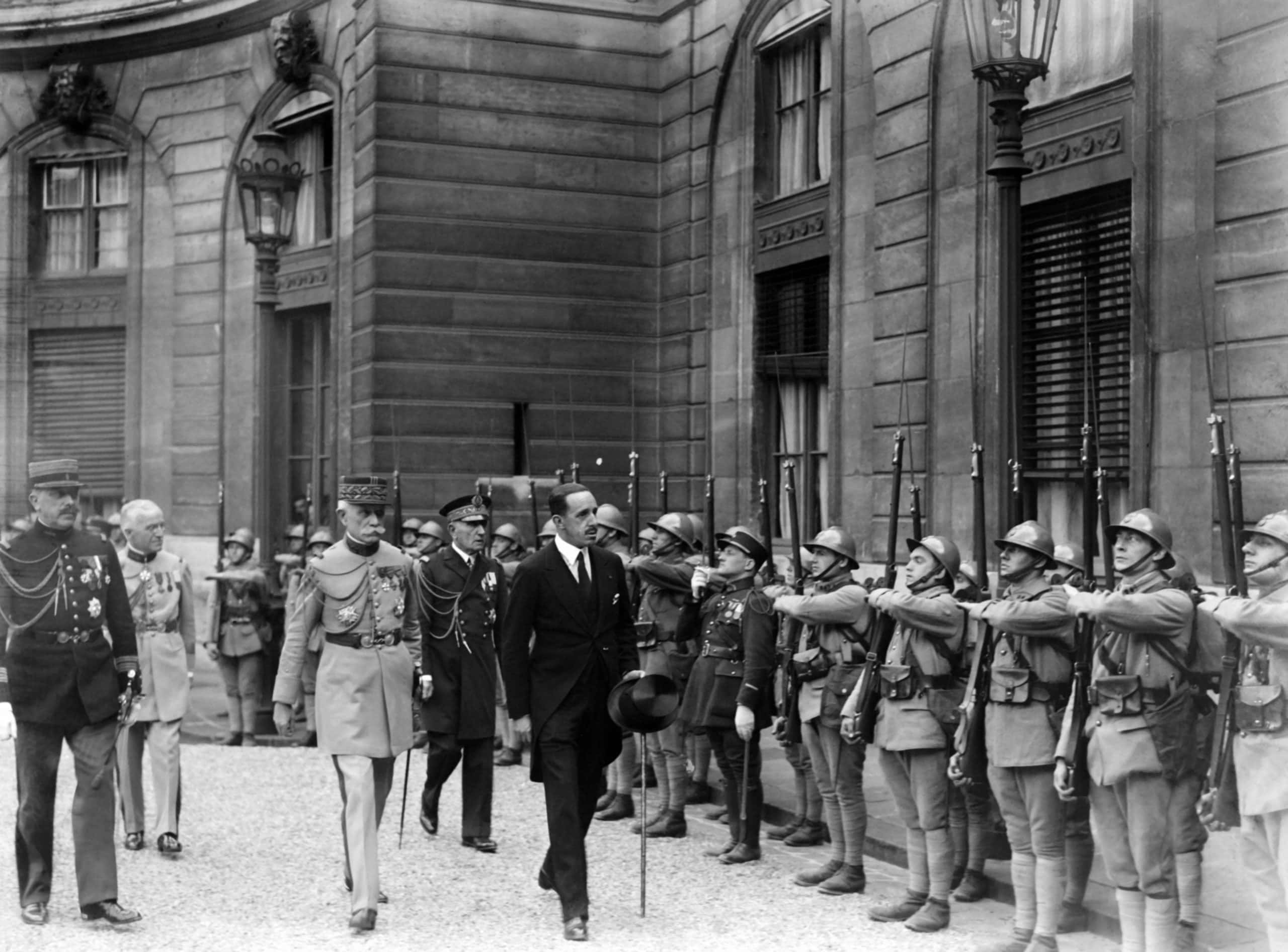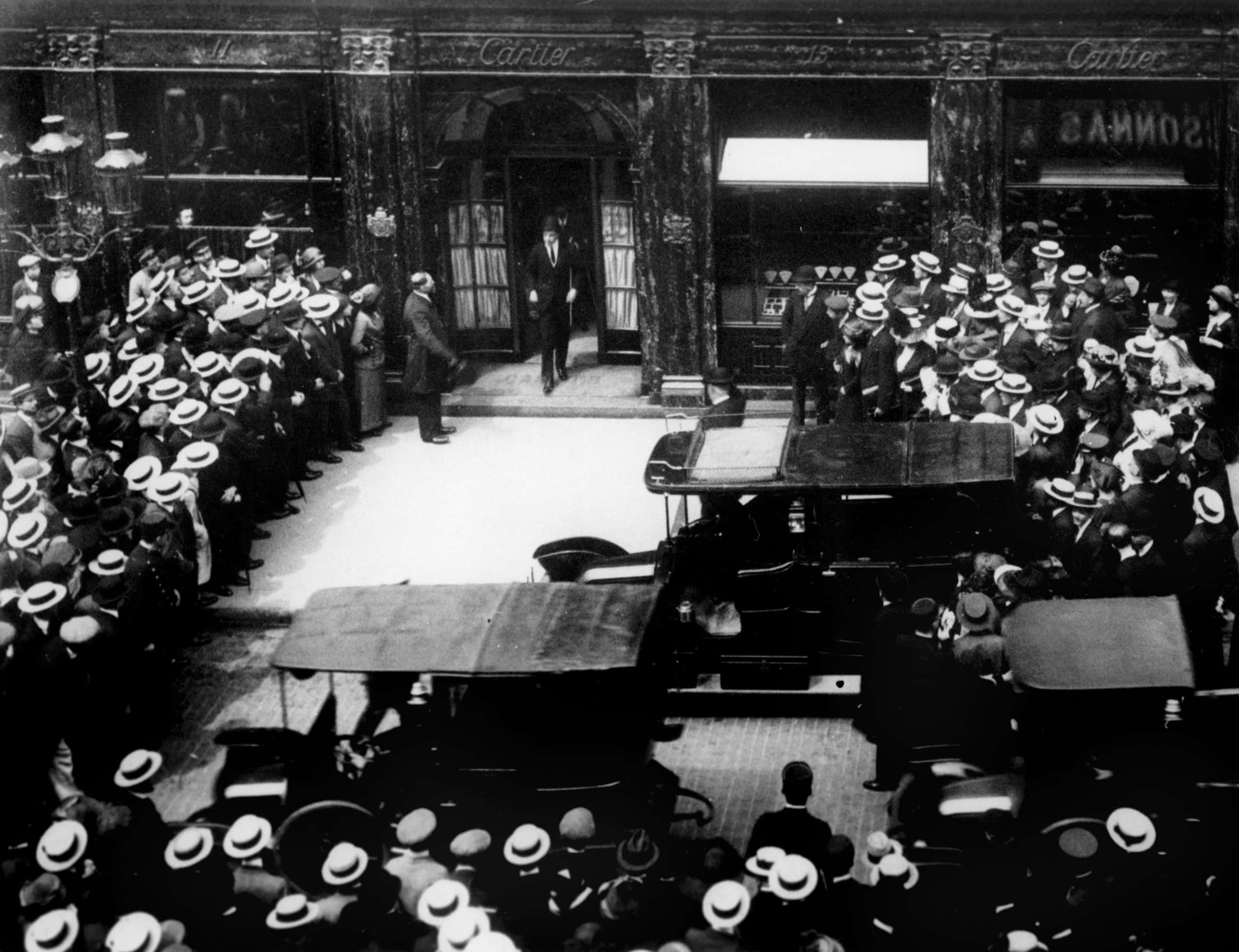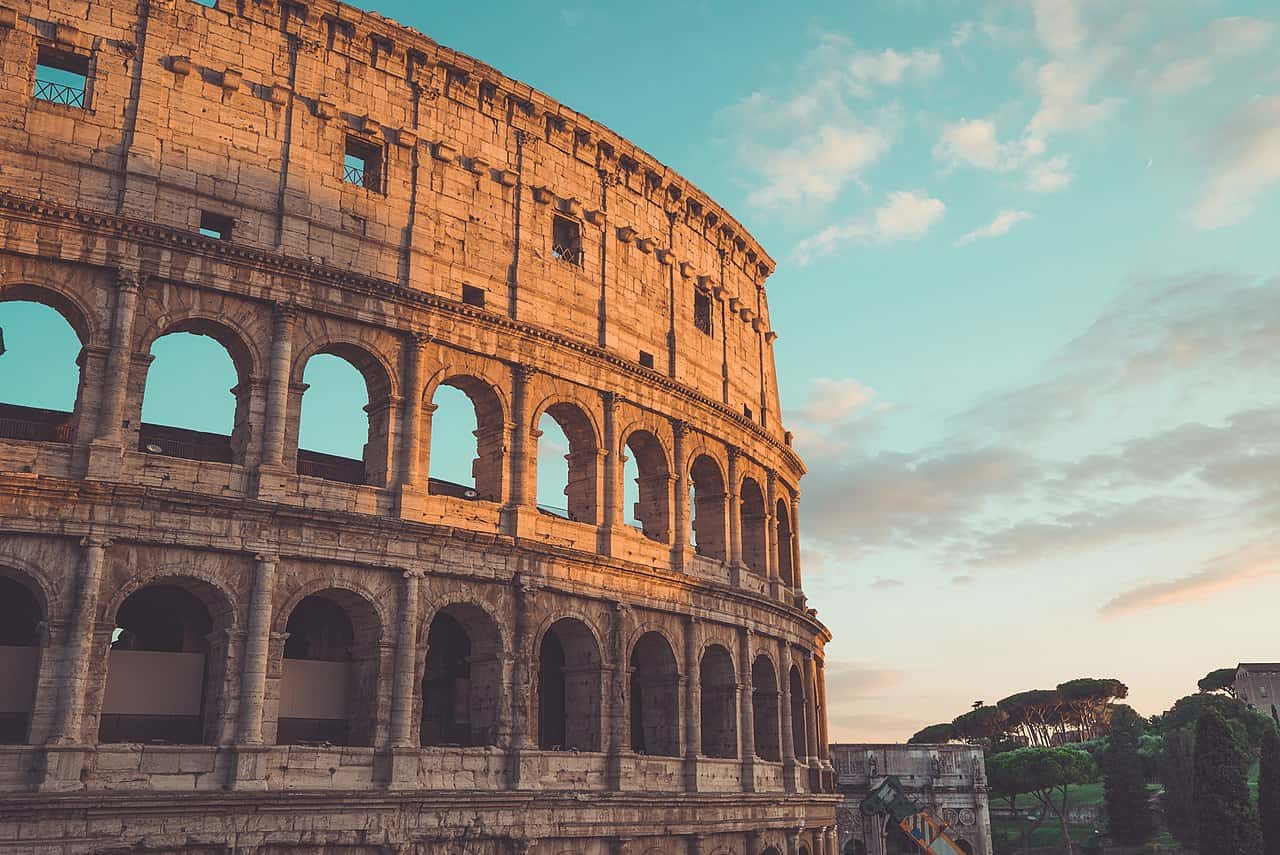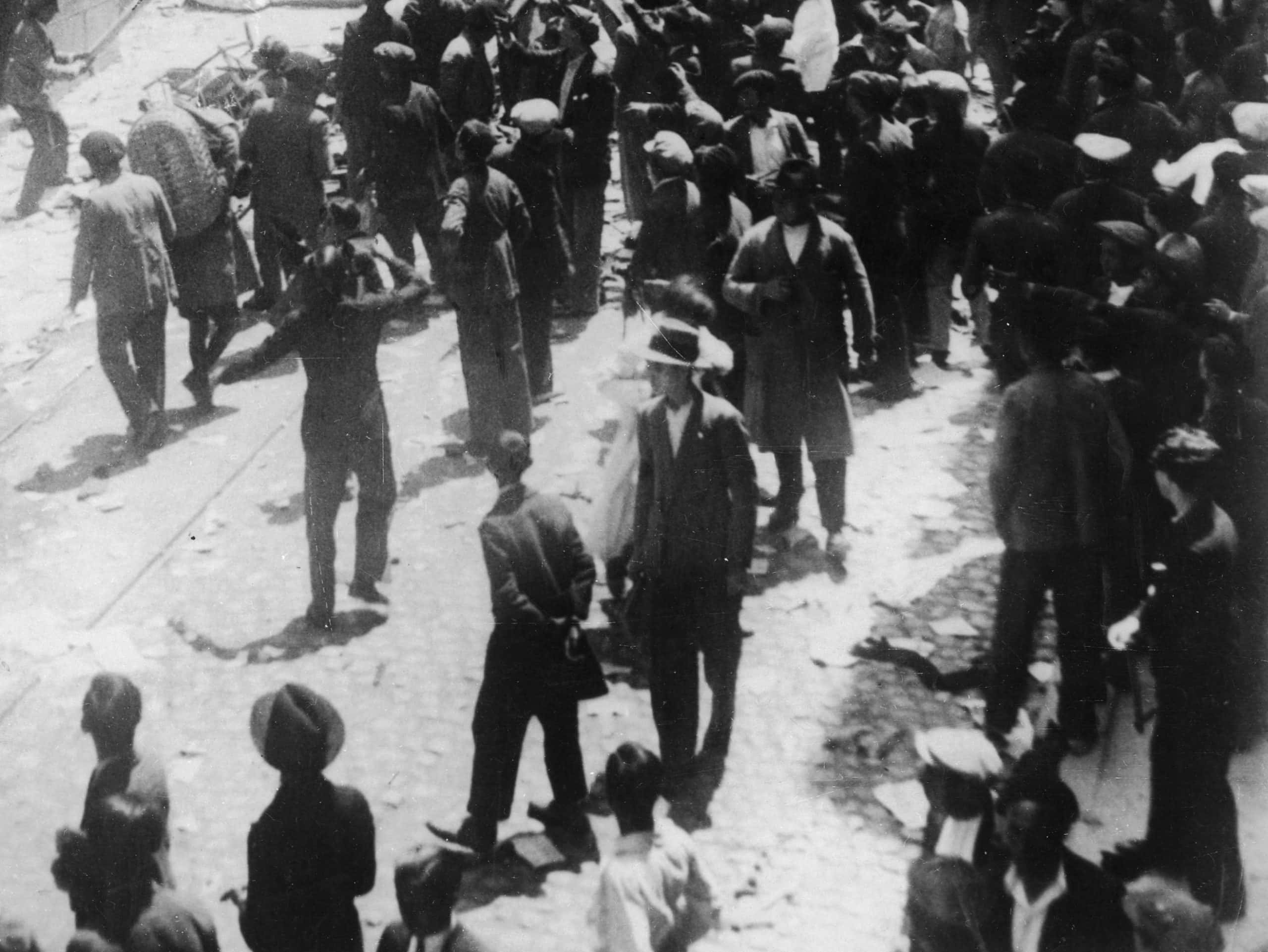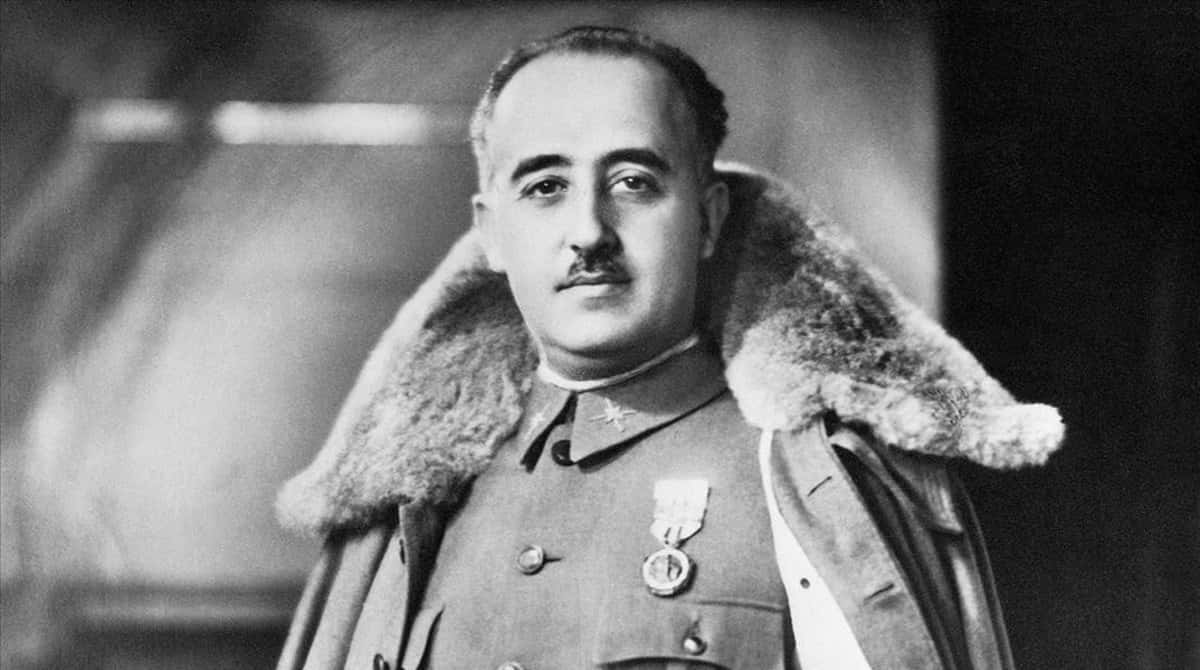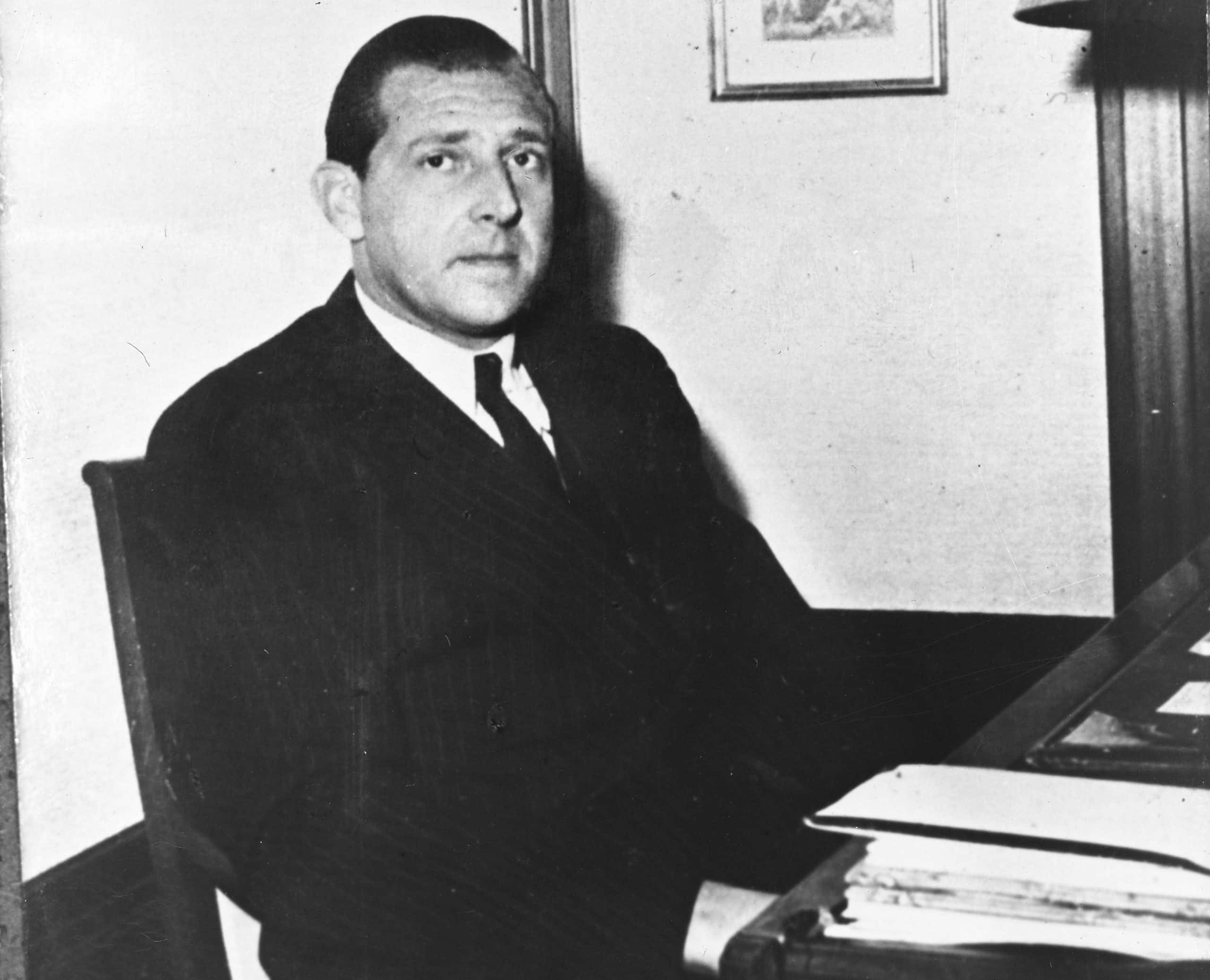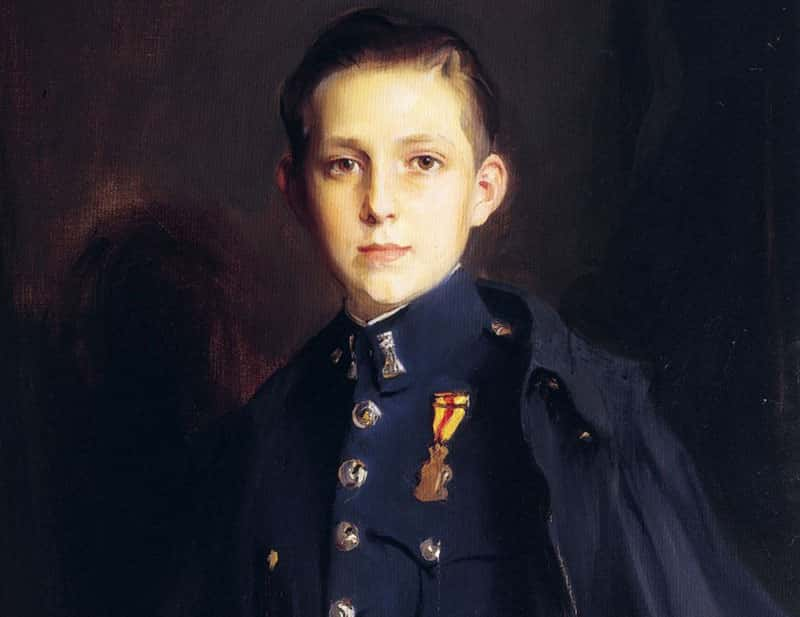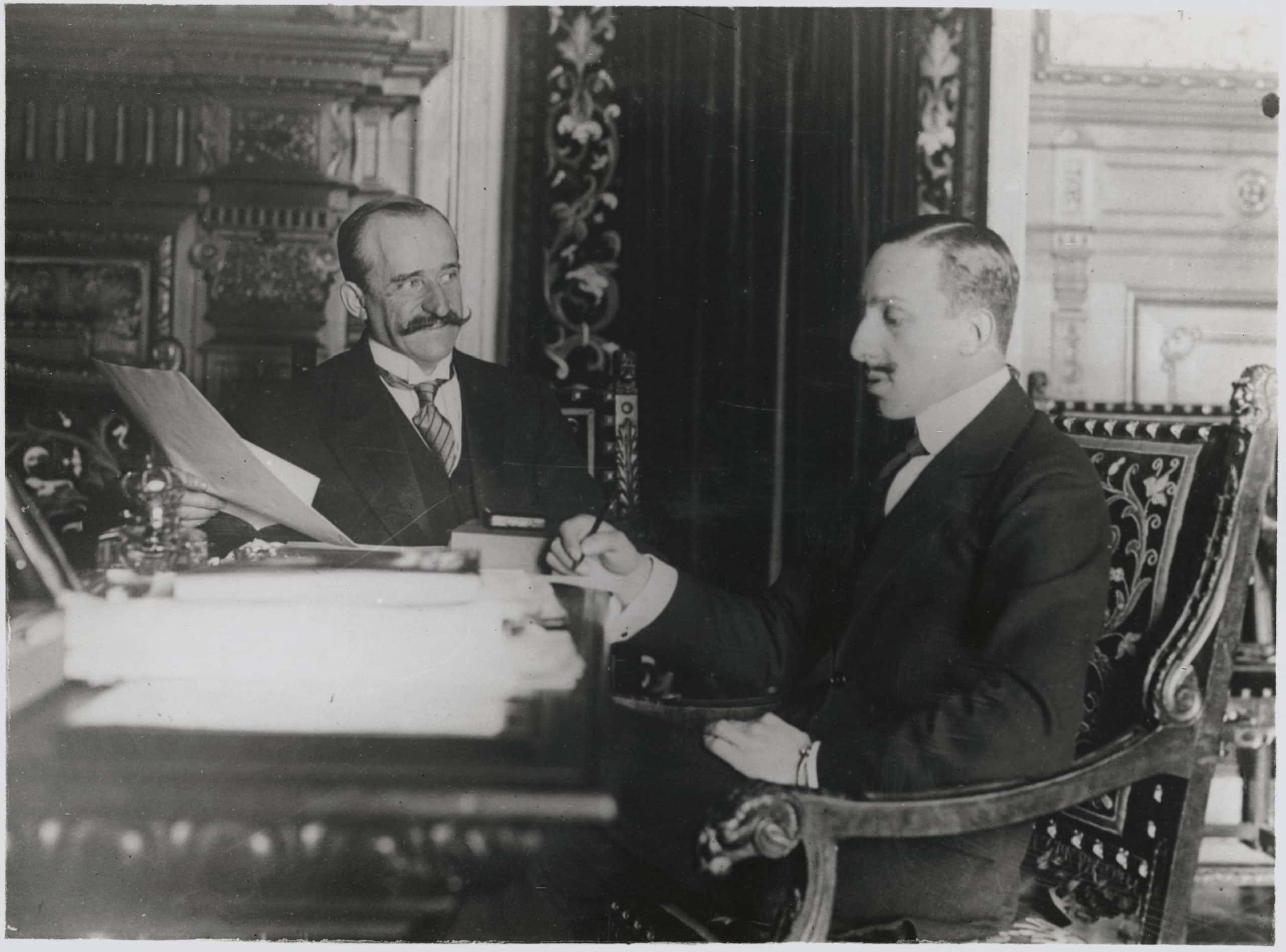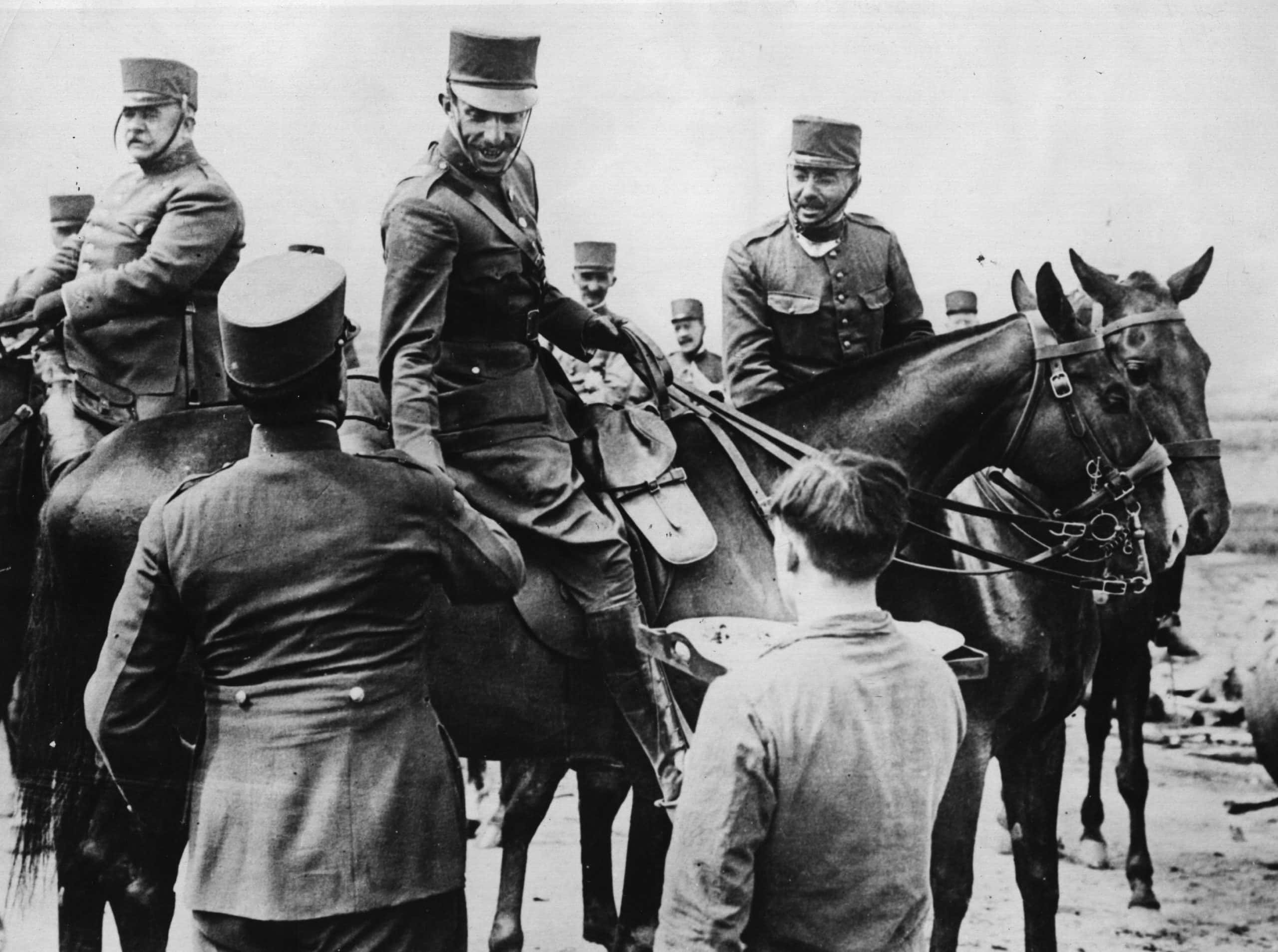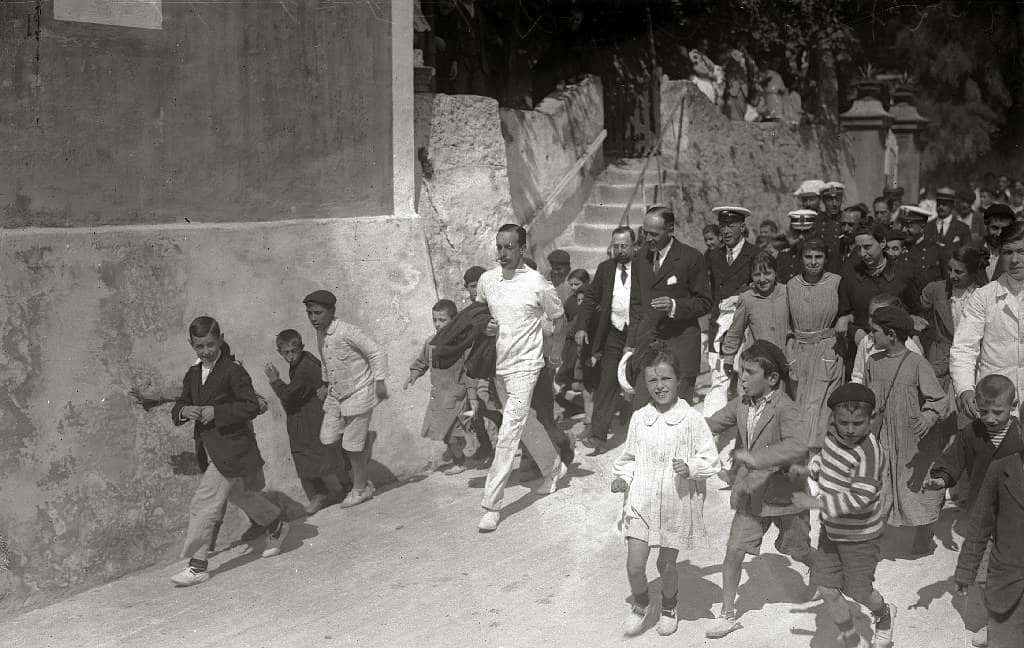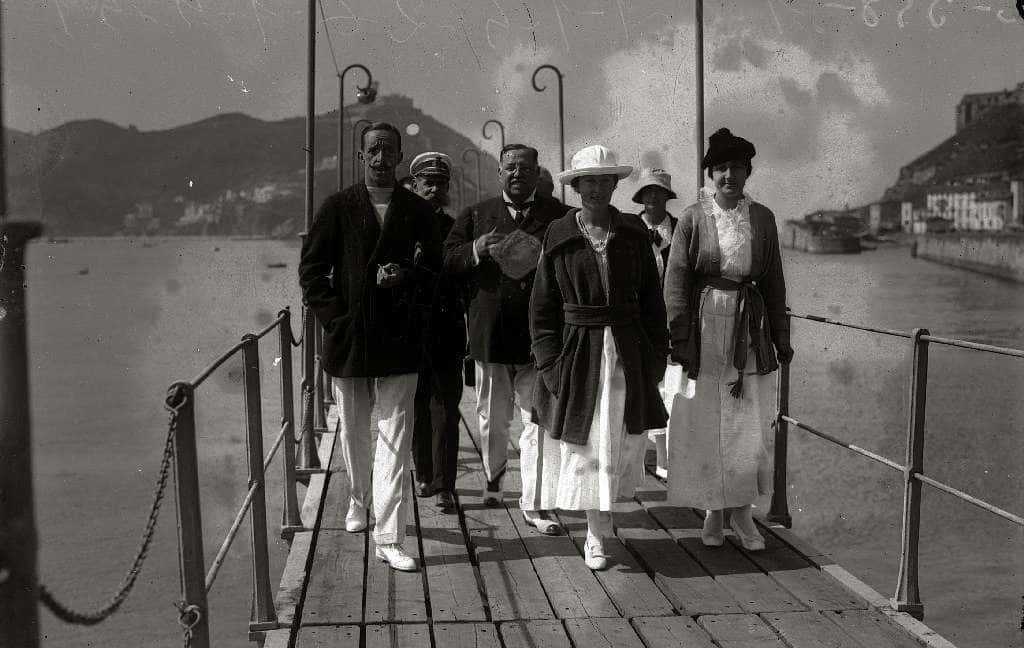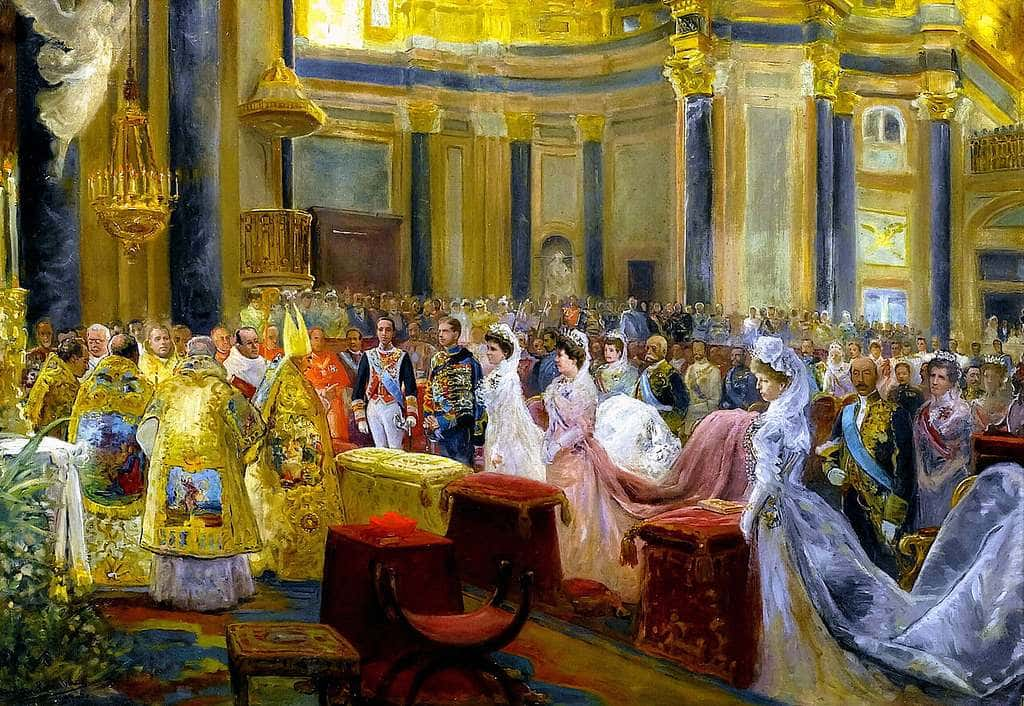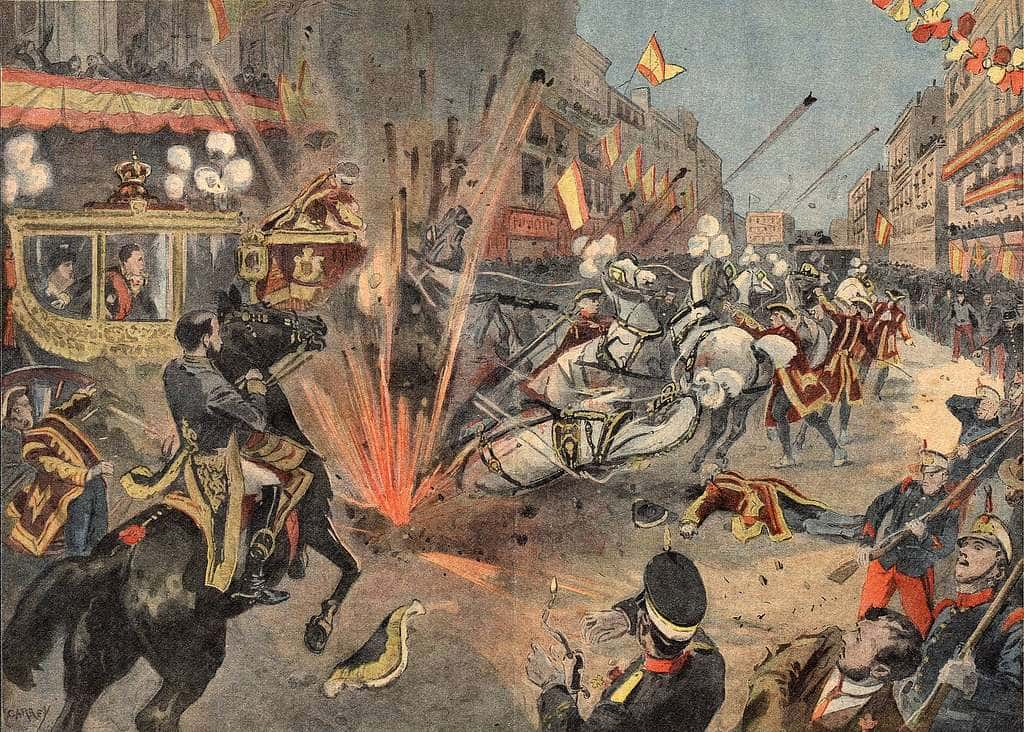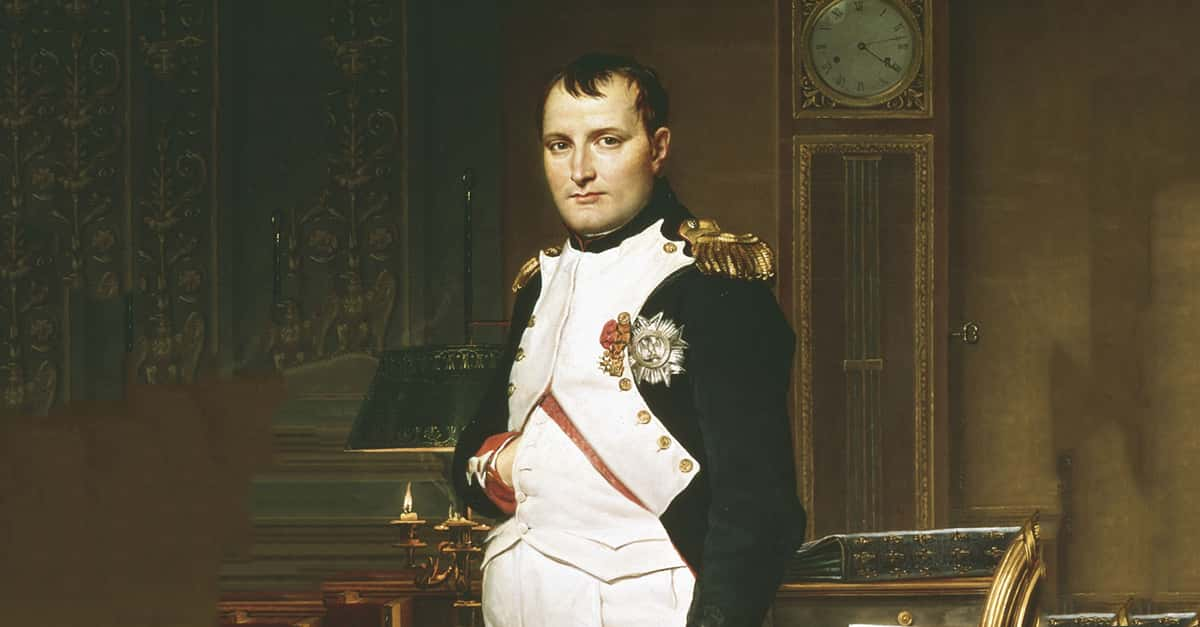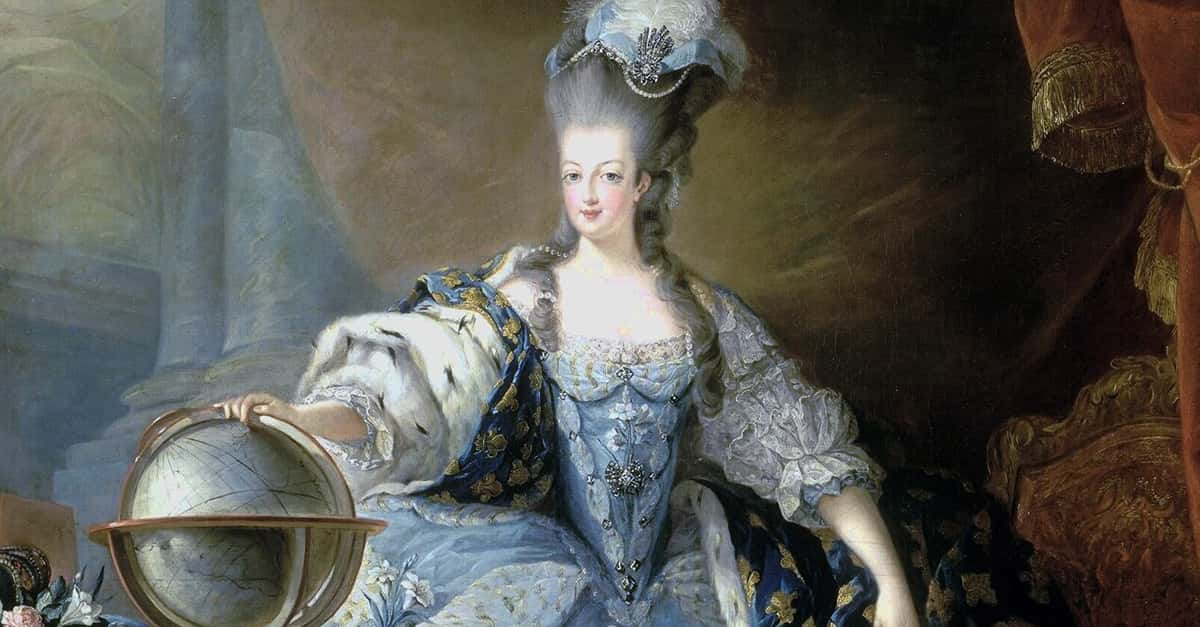Spain’s Complicated King
They say some figures are born to rule. In the case of Alfonso XIII, he was actually even ruling before he was born—from inside the womb. Once he’d grown up a bit, it was easy to see that Alfonso was a different kind of monarch: He married for love, used American slang, and even helped thousands find their lost loved ones during WW I. So, was Alfonso a good guy? Well, this being history—and not a fairy tale—get ready for some very royal contradictions.
1. He Was Served Up Young
Little Alfonso XIII was born in Madrid, Spain on May 17, 1886. He went directly from the birthing room to a silver tray. Without even bothering to put clothes on him, attendants hurried him off to see the Prime Minister. So, what was the rush for baby Alfonso to meet the PM? Because six months before his birth, tragedy had struck.
2. He Was A Tiny King
Six months prior to Alfonso’s birth, his father—Alfonso XII—was suffering from both tuberculosis and dysentery. Alfonso XII was a popular king whom the people of Spain nicknamed “the Peacemaker.” Unfortunately, that didn’t help his health any, and he passed on November 25, 1885, leaving Spain in an awkward position—without a king. Well, no king unless you count tiny Alfonso XIII, who was still in his mother’s womb...
3. He Got Special Treatment
Once he was born, Alfonso’s baptism was extremely special—they brought the holy water directly from Israel's river Jordan. Also, the baby wore a Golden Fleece around his neck. The Golden Fleece signified bravery, but what had young Alfonso done so far? Well, he survived birth, and maybe that was brave enough. But as a wee baby, what could Alfonso possibly do for his country?
4. He Had To Wait
Of course, being in diapers made it impossible for Alfonso to rule, so the job went to his mother: Maria Christina of Austria. The plan was for her to rule until Alfonso was 16 years old. Unfortunately, those years were a total disaster for the kingdom. Spain lost a bunch of its colonial holdings: Cuba, Puerto Rico, Guam, and the Philippines. The United States had taken them all during the Spanish–American War.
Alfonso would certainly have his work cut out for him when he became of age. Or should I say if he came of age...
5. He Was Under Attack
The 1889 flu pandemic hit Spain hard, and not even royalty got a pass. In January 1890, Alfonso's health wasn’t looking too good. Doctors said the flu had attacked the four-year-old’s nervous system, and the future king was in a “state of indolence.” He'd be lucky to recover, but if Alfonso didn’t survive, Spain would again be without a king. As little Alfonso’s health worsened, the country waited on pins and needles.
6. He Bulked Up
Miraculously, Alfonso recovered from the flu, and even became quite healthy. His mother pushed him toward building up his physical strength, because she didn’t want him to be weak and susceptible to more disease. To do this, Alfonso got buff by swimming, sailing, and horse riding. But it wasn't all fun and games—he had more dangerous hobbies too. He soon became obsessed with all things concerning battle.
This interest stayed with him for the rest of his life. Although it wasn’t always, as we’ll soon see, with winning results.
7. He Beat The Odds
Alfonso, with the help of his mother, managed to survive adolescence and become old enough to wear the king’s crown, which they gave him in May of 1902. That week, the citizens of Spain went ballistic with joy. They celebrated their new king with balls, receptions, and even bullfights. The long wait was over, and they had their new king. The state of the country, however, wasn’t quite as welcoming.
8. He Had A Full Plate
When Alfonso became king he had a lot to deal with. He happened to inherit a kingdom in utter chaos. There were the Catalan and Basque groups who wanted to separate from Spain, and then there were the anarchists, the socialists, and the labor groups who were getting rougher and rougher in their protest tactics. The politicians were also unruly. In fact, Alfonso had to deal with eight different Prime Ministers between 1902 and 1906—that’s more than one PM per year.
But don’t worry, Alfonso had an almost super-hero type confidence for such a young king.

History's most fascinating stories and darkest secrets, delivered to your inbox daily.
9. He Branded Himself
Alfonso knew that he had a lot of hard work to do, but thankfully, even at his young age, he believed he was the man for the job. He even gave himself the Arnold Schwarzenegger worthy nickname: “the Regenerator.” But Alfonso wasn’t regenerating his body parts a la a sci-fi film, he was regenerating Spain’s reputation abroad. All this didn’t mean, however, that he was above kicking back with some typically teenage pursuits.
10. He Tried To Be Groovy
Alfonso was very curious about the United States and wanted to know more. To do this, he hired an American guy his own age—but he wasn't interested in studying American politics. No, it was American slang he wanted. It was a little early for words like “groovy” and “cool,” but, at that time, “bonehead” and “humdinger” were both distinct possibilities.
And, like many young American boys, he planned to use his new vocabulary to find a sweetheart...
11. He Found A Princess In A Palace
After his formal education, which focused on defense and love of the country, Alfonso turned to the task of finding a suitable mate. He traveled to the United Kingdom and stayed a while at Buckingham Palace, swooning over the ladies there. Here he caught a glimpse of Princess Victoria Eugenie of Battenberg, who was the niece of King Edward VII.
Alfonso didn’t hide his interest, and by all appearances it was quite mutual. Not everyone, however, felt as excited about his teenage crush.
12. There Were Obstacles
Alfonso’s mother wasn’t happy with one thing about Alfonso’s new crush: She was Protestant. Mom was sure that he would be better off with a Catholic Princess and, to mom’s thinking anyway, one from her own family back in Austria. She also didn’t view the Battenberg family as being quite royal enough. There was, however, a more pressing—and biological—reason for Alfonso not to marry Victoria.
13. She Had Bad Genes
Princess Victoria had a brother and he wasn’t well. Upon closer inspection the awful truth came out: He suffered from hemophilia. Because it’s an inherited disease, the chance of Victoria having it was 50/50. Not great odds when you’re talking about producing an heir to the throne. So, the question was: How badly was Alfonso smitten with Victoria? Enough to take such a risk?
14. He Was Unusual
Alfonso wasn’t like other royalty, He wasn’t about to let himself get talked into marrying for the good of the country and not the good of himself. Alfonso was like a breath of fresh air when it came to monarchs. He is famously quoted as saying, when talking about marriage: "I want to be happy, and then I shall know how to make others happy."
Like a fairy tale groom, Alfonso was sure it was Victoria who would make him a happy man, and he’d let nothing stand in his way.
15. He Got His Way
Alfonso and Victoria’s love for each other must have been powerful, because she agreed to do something surprising: change her religion from Protestant to Catholic. This act inspired Alfonso’s mother to have a change of heart and agree to the marriage. And the issue of Victoria’s potential hemophilia? They agreed to shelve it under: “Worry about later.” This is, as we’ll soon see, never a good idea.
16. They Got Down To Business
After their extravagant wedding, Alfonso and Victoria got down to their royal duty: making babies. The first child, born May 10, 1907, was a boy—which was always a good thing for royals back then. But, if you remember correctly, it still hadn’t been determined if the queen would pass on hemophilia to their children.
The first child would be like a test, and the stakes couldn’t have been higher.
17. He Got Bad News
Sadly, young Alfonso XIV didn’t pass the test: He was a hemophiliac. This proved that Victoria was a carrier. It also meant that all future children of Alfonso and Victoria could potentially have the disease. This was a disaster that they all had known was possible, but hoped wouldn’t be true. The couple’s fairy tale marriage was at risk. What would the romantic Alfonso do?
18. He Turned Away
When he married her, Alfonso knew that Victoria could potentially pass on hemophilia to their children. Now that it was actually happening, he found he couldn’t deal with it. Maybe it was the thought of bringing a child into the world with that illness that made him do it, but at this point, around 1914, he started having affairs with other women—many other women.
But other events in 1914 were about to erupt in Europe and make this problem seem trivial.
19. He Couldn’t Choose
In 1914, WWI erupted and Spain, as a major European power, was among the nations at the center of it. The only problem was, Alfonso didn’t know which side to join. You see, Spain had family connections on both sides of the conflict. Because of this, it wasn’t glaringly obvious which side Alfonso and Spain should be on. So Alfonso took the easy way out...
20. He Stayed In Neutral
Alfonso decided to “pull a Switzerland” and became neutral during WWI. This way he wouldn’t ruffle any feathers on either side. Spain did their part, though, by assisting prisoners on both sides of the conflict. They also served as a central post office for letters between the fighting men and their loved ones back home.
Alfonso, however, had no idea how much effort being neutral would actually be.
21. He Was Overwhelmed
When he received the first letter from a poor French woman asking for help finding her son, Alfonso assisted the woman personally. News of the king’s kindness traveled fast, and soon thousands of letters arrived asking about missing sons, husbands, and nephews. Alfonso couldn’t handle the number of letters himself, so he started the Pro-Captives Office, which soon employed three diplomats and 40 others.
The office eventually handled more than 500,000 letters. He may have started stepping out on his wife, but at least Alfonso was a good guy somewhere in there.
22. They Lauded Him
Because of his humanitarian efforts, Alfonso got the moniker “The Angel of Mercy” in England. Germans referred to his office as “The King of Spain’s Archive of Tears.” Time magazine put him on the cover in December 1922, and the people at the Nobel Peace Prize nominated him for the award. The French were particularly moved and called him, “The Royal Knight of Charity.”
All these accolades were great to hear at the time and, as we’ll soon see, even better to reap rewards from in the future. But unfortunately, kind words couldn't protect him from what was coming next.
23. He Got It Again
Alfonso, if you remember, almost succumbed to the 1889 flu pandemic. Well, in 1918 it must have felt like deja vu, as he caught the flu again. It was 29 years later, and Alfonso became gravely ill. This was the famous flu pandemic that got the nickname the “Spanish Flu.” However, if you think it was only Spaniards who got the Spanish Flu, think again.
He never could have predicted it, but Alfonso's decision to remain neutral was about to come back to bite him, big time.
24. He Kept No Secrets
As WWI raged, the countries involved in the conflict were keeping most things secret from each other—including health reports. But remember, Spain was neutral, so they openly reported their cases of the flu and even the fact that their king was sick. This, however, made it look like only Spain was suffering—in fact all of Europe was as well.
So, while the pandemic affected Spain no more than anywhere else, it will forever be remembered as "The Spanish Flu."
25. He Had To Choose
In 1920 Alfonso—now fully recovered from the flu—faced a new problem. Just as Spain had lost a few countries to America back when he was a teenager, it was now at risk of losing Morocco as well. There were two thoughts in Spain about this issue: let Morocco go without a fight, or do whatever it took to keep it. Alfonso had an unenviable task: Pick the side that would anger the fewest people. That never ends well...
26. He Chose To Fight
To the surprise of everyone, Alfonso chose the side of the Africanists—the ones who wanted to fight for Morocco. It was a surprise because Alfonso had a reputation, like his father, for being a conflict avoider. His choice also earned him the nickname “the Africano.” Alfonso seemed ready to let blood flow to get what he wanted—as long as it wasn’t his blood.
27. He Liked Real Men
One of Alfonso’s generals—Manuel Fernandez Silvestre—was facing a tough time in the Rif mountains of Northern Morocco, and needed a pep talk from his king. Alfonso sent Silvestre a letter of support that started: “Hurrah for real men!” This led Silvestre to stay with the fight—but it ended up being a decision with deadly consequences.
28. He Sent Them To Defeat
At the bidding of Alfonso, Silvestre entered the “Battle of Annual”—which was soon retitled the “Disaster of the Annual.” If the new name doesn’t give it away, then let me: It was the worst defeat in the history of the modern Spanish Army. Silvestre took his own life out of shame soon after. And, to make matters worse, if Alfonso hadn’t sent the letter, maybe Silvestre would have avoided the battle altogether. How could Alfonso live with himself?
29. He Lost Support
The “Disaster of the Annual” was just the beginning of the hard times for the Spanish army in Morocco. Back in Spain, people wanted Alfonso to give it up, but he had no intention of doing so. Support for the conflict was at an all-time low, and “abandonista protesters”—those against the fighting in Morocco—were burning flags in Barcelona.
Alfonso could deal with the protesters, but what happened next stopped him in his tracks.
30. He Was Stubborn
Dealing with protesters was hard enough, but when the actual servicemen refused to fight, Alfonso knew he was in trouble. While some of the fighters mutinied, others, in August 1923, just plain refused to get on the boat to Morocco at all. You could say that Alfonso was fighting two losing battles: against Morocco and his own subjects.
He was in serious trouble and there was someone, lurking in the shadows, ready to take advantage.
31. He Watched It Happen
By September 1923, Spain had had enough of Alfonso’s deadly conflict with Morocco. Alfonso stood by as General Miguel Primo de Rivera organized a political coup and easily took control of the country. De Rivera was fighting against Alfonso’s unpopular battle, and the people ate him up. And what about Alfonso? What could he possibly do now to save face?
32. He Gave Him A Title
Alfonso was up against the wall. General de Rivera had overthrown parliament and was claiming himself dictator of Spain. He had tons of public support and that worried Alfonso. How could he stay on this guy’s good side? Easy. Alfonso turned around and made the dictator Prime Minister. He even introduced him as “my Mussolini”.
But there was another reason for Alfonso to get behind Primo de Rivera. Ever heard of a little thing called "leverage?"
33. He Had A Secret
Alfonso barely batted an eye when he heard the news of the Disaster of the Annual, and that would have looked very bad to his grieving kingdom. At least Alfonso knew enough to keep that little piece of information secret. There was, however, a written report about this very incident, and de Rivera had access to it. There’s some evidence that there may have been a little deal brokered between Alfonso and Primo de Rivera.
Likely the new Prime Minister buried the report in exchange for his shiny new title.
34. He Did Nothing
It didn’t take long for Spaniards to grow tired of the dictatorship of de Rivera. In January 1930, there was a plot to get rid of him, and it was pretty clear that Alfonso knew about it. So, what did Alfonso do to protect his Primo Prime Minister? Absolutely nothing. Rivera found out about the plot and fled to Paris hopefully to spend his remaining days eating french pastries.
That would be his fairy tale ending—but, sadly, real life rarely works out that way.
35. He Was Tainted
Instead of biting pastries, de Rivera bit the biscuit. It was a nasty combination of diabetes and the flu that got him. De Rivera may have been officially gone, but Alfonso still bore the stain of supporting him and his unpopular dictatorship. Alfonso appointed a new Prime Minister and hoped that all memories of de Rivera would disappear—like that was going to happen.
36. He Wasn’t Popular
Well, the people of Spain didn’t forget and Alfonso’s popularity plummeted. In April 1931 Alfonso got some even more brutal news: The army was no longer loyal to the king. After further elections that basically just demonstrated that the people were against him, Alfonso did the inevitable: He fled Spain. His first stop was Paris, and what he found there made his jaw drop.
37. He Received A Strange Welcome
When Alfonso arrived in Paris by train, he didn’t know what to expect. He was likely emotional after fleeing his home country, but the citizens of France surprised him. There was a crowd and they seemed to be more than just a little unruly. They were tearing down the barricades just to get near Alfonso. But what did they want with him? Were they friends or foes?
38. He Couldn’t Believe His Ears
The crowd at the Paris train station was getting closer and closer to Alfonso, and now he noticed they were chanting something. He quickly translated what they were saying: “Long live the king! Long live the king!” This outpouring of emotion left him absolutely stunned. Why were they welcoming him as a king? What had he ever done for France?
39. They Had Fond Memories
Apparently, the French had very long memories—especially when it came to good deeds. Back during WWI, Alfonso and his neutral Spain had helped prisoners on both sides of the conflict. He’d also helped French families locate their lost or missing loved ones. These good deeds prompted the French to welcome Alfonso as the king they still saw him as.
But what was his status anyway? Was he still King of Spain or not?
40. He Forgot Something Important
Alfonso eventually set up his life in Rome, but something important had slipped his mind: abdicating the throne. So he was still king, but not even living within his kingdom. Alfonso wasn’t about to give up his family’s connection to royalty—it was far too prestigious. By this time, he and Victoria had four sons and two daughters.
Was there a chance that one of them could inherit the throne from exiled Alfonso?
41. He Had A Single Hope
In 1933, Alfonso’s two older sons, Alfonso and Jaime, made it clear they wouldn’t be seeking the Spanish Crown. This left Juan and Gonzalo—but soon, there would only be one. Remember, his first son inherited hemophilia from his mother. Neither daughter got it but, sadly, his youngest son Gonzalo did, and by 1943, he was tragically already six feet under.
So, Alfonso had just one son male heir, Count Juan, who was capable or even interested in becoming king.
42. He Made A Choice
The Spanish Army was not happy with the way politics were going at this time, so, in September 1936, they started a civil conflict. It was the Nationalists—supported by the army—versus the existing Republican government. Alfonso, even though he was still exiled, had to make a choice between the two. He was still hoping to return to Spain, so he shocked everyone by choosing the side he thought would win: the rebellious Nationalists.
43. He Wasn’t Wanted
Alfonso was hoping that his choice to support the Nationalists would win them over—boy did he get that wrong. Francisco Franco, the Nationalist leader, made it very clear that Alfonso had no place in his government; now or in the future. But Alfonso wasn’t one to take “no” for an answer, so he did something drastic to win the respect of Franco.
44. He Sent His Son
Remember Alfonso had only one son at all interested in being king someday, and his name was Juan. Alfonso, maybe to show his good faith to Franco, sent Juan to fight alongside the Nationalist army. It was an obvious ploy to improve relations between Alfonso and the Nationalists. Like many of Alfonso’s schemes, it went horribly wrong.
45. They Weren’t Interested
When Alfonso’s son Juan arrived at the border, he was ready to fight for the Nationalists. A general of the army, Emilio Mola, met Juan at the border between Spain and France. However, instead of handing him a uniform and a firearm, Mola did something shocking: He had Juan captured and expelled from Spain. Clearly, the Nationalists did not want Alfonso, or any members of his family, fighting for them.
Luck just didn’t seem to be on Alfonso’s side—until it suddenly was.
46. He Got A Royal Surprise
There is a saying that when one door closes another opens. Well, in this case, the closing door was the Duke of San Jaime’s coffin, and the door opening was Alfonso’s chance to be a king again. Because of San Jaime’s passing, in September 1936, Alfonso became—in some people’s eyes anyway—King Alfonso I of France and Navarre.
Alfonso’s new role gave him leverage—but what would the sly Alfonso use it for?
47. He Made A Demand
Alfonso was now the King of France and feeling confident—maybe a little too confident. On January 15, 1941, Alfonso basically told the people of Spain that he would give up being king of their country on one condition: If they would take on his son as their new king. Alfonso was probably quite nervous waiting for Spain’s reply.
Sadly, he’d never find out what the verdict was.
48. He Can Rest In Peace
It was February 28, 1941, when Alfonso succumbed to a heart attack and passed. Unfortunately, Alfonso’s son, Count Juan, never did become the King of Spain. It turned out that most people thought he was too tied to his father’s history—and not in a good way. In 1969, however, Franco declared Alfonso’s grandson king, and his son—Alfonso’s great-grandson—is the current King of Spain.
Alfonso can rest in peace knowing that his legacy continued.
49. He Was On Vacation
The Disaster of the Annual was the turning point in Alfonso's disastrous reign—it marked when Alfonso went from beloved king to cruel despot. The news of Spain’s huge losses in the battle took a while to reach Alfonso. As it turned out, he was vacationing in the South of France when he finally heard the terrible news. The messenger approached Alfonso on the golf course, where he was mid-game. Alfonso put down his club, and took in the horrible news of the lost battle. His reaction, however, was utterly disturbing.
50. He Said C’est La Vie
When Alfonso heard the news of the high number of Spanish casualties in Morocco, he just shrugged and said: “Chicken meat is cheap”. By this we can only assume he meant that the servicemen’s lives weren’t worth very much. After that glib statement, he picked up his club and continued playing. It was a slap in the faces of the lost men—but Alfonso wasn’t finished with his icy reactions.
51. He Wasn’t A Comfort
After finishing his game of golf, everyone assumed Alfonso would leave France and return home to comfort his grieving country. Well, if Alfonso wouldn’t interrupt his golf game, do you think he would disturb his vacation either? Alfonso continued enjoying the warm temperatures of the South of France, while his citizens back at home were getting hot under the collar.
52. It Was Like A Fairy Tale
Despite his disastrous reign, Alfonso and Victoria's wedding day was still probably the darkest day of Alfonso's life. On May 31, 1906, he watched his bride walk down the aisle at the Royal Monastery of San Jeronimo in Madrid. They spared no expense and even invited many British Royal Family members. The guests included Victoria’s cousins: the Prince and Princess of Wales, who would later be the King and Queen of England. It was a fairy tale wedding...well, at least until it all went horribly wrong.
53. Their Wedding Was Marred
After the elaborate ceremony, as Alfonso and his bride returned to the palace, an unseen person tossed an object out of a window. It wasn’t immediately clear what the thing was—until it exploded. When the smoke had cleared, the newlyweds looked out upon a horrible sight: 100 wounded and 30 lives lost. They later discovered the explosion was an attempt by a Catalan anarchist to take their lives—and yet this horror story was just beginning.
54. He Showed No Fear
Following the attack on Alfonso and his bride, there continued to be even more threats on the king's life. There were so many attempts in fact, that it became a constant fear for the people of Spain, and of course, for the king himself. Alfonso, however, showed great bravery in the face of such danger, which only increased his people's admiration. If only they had known what their king had in store for them...

